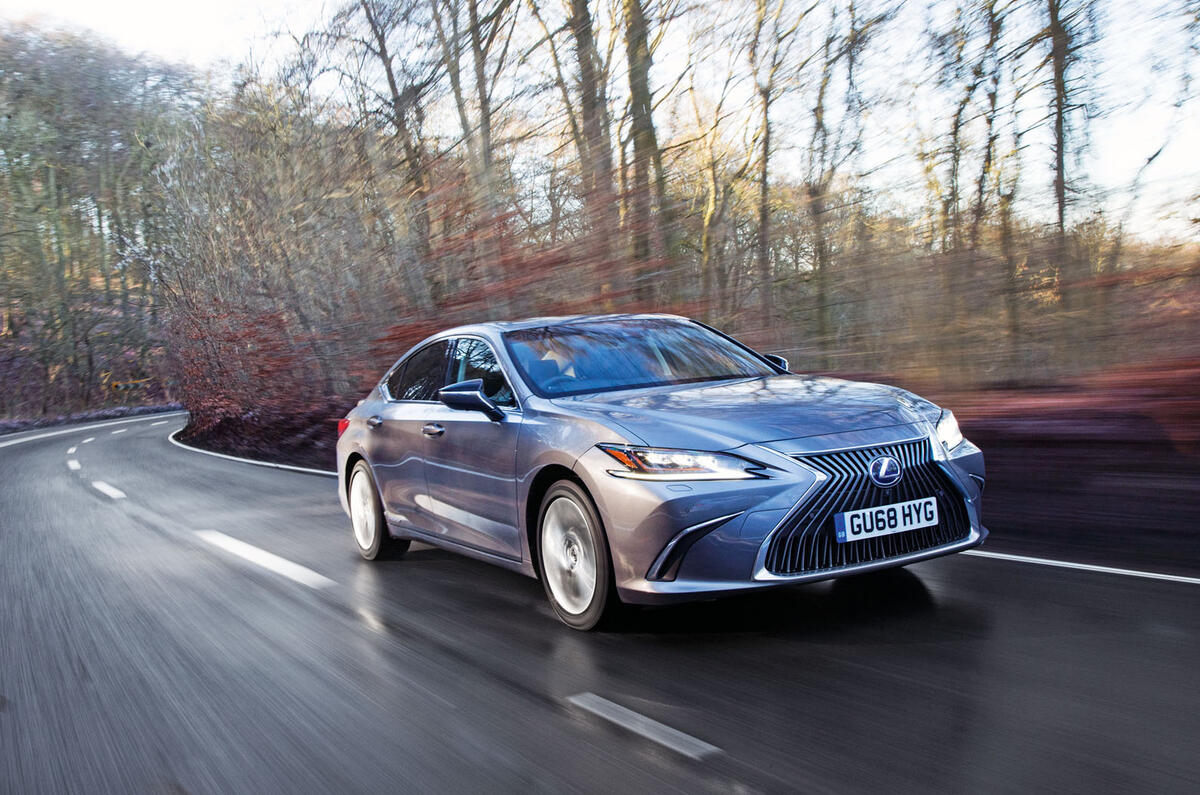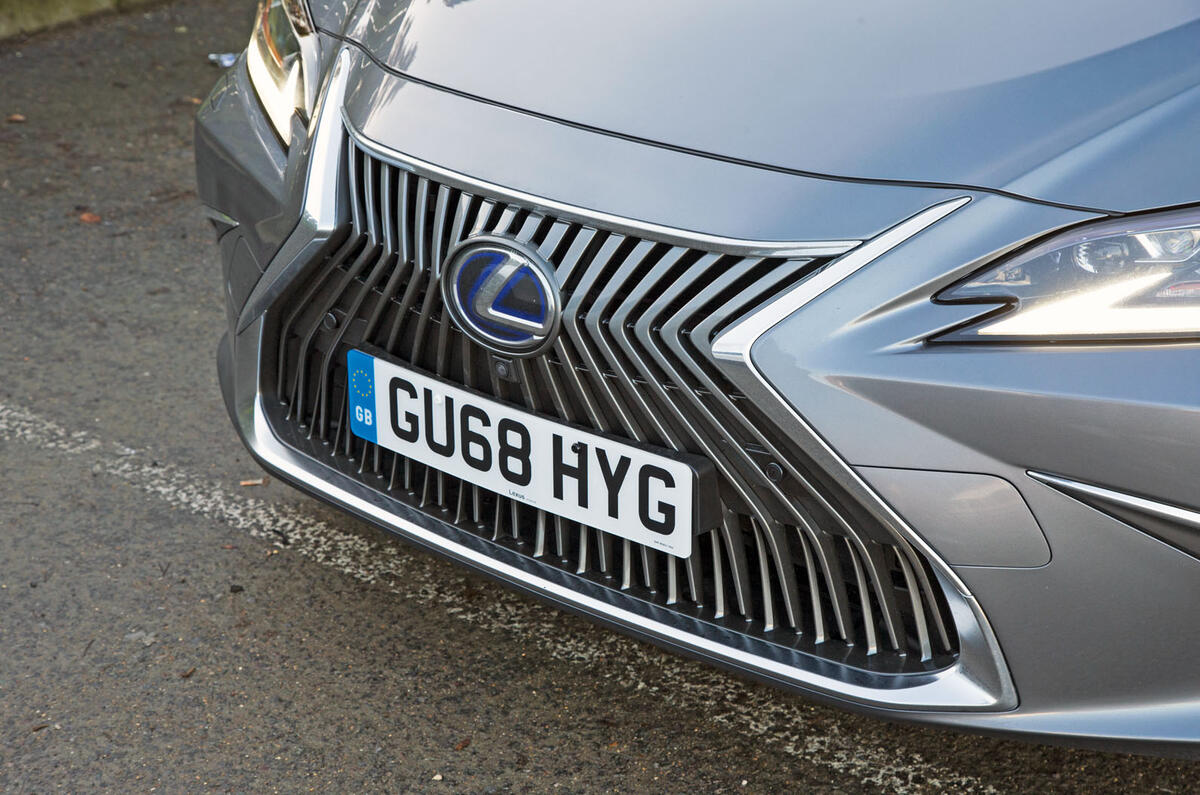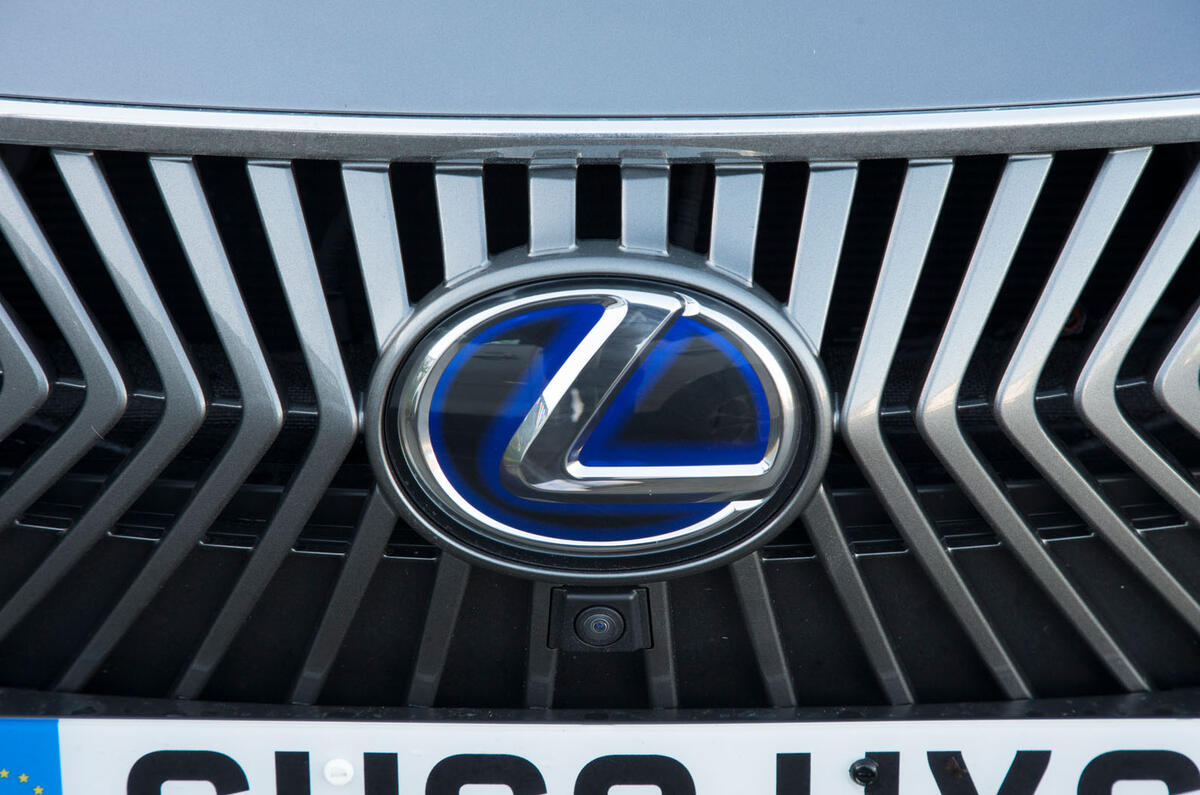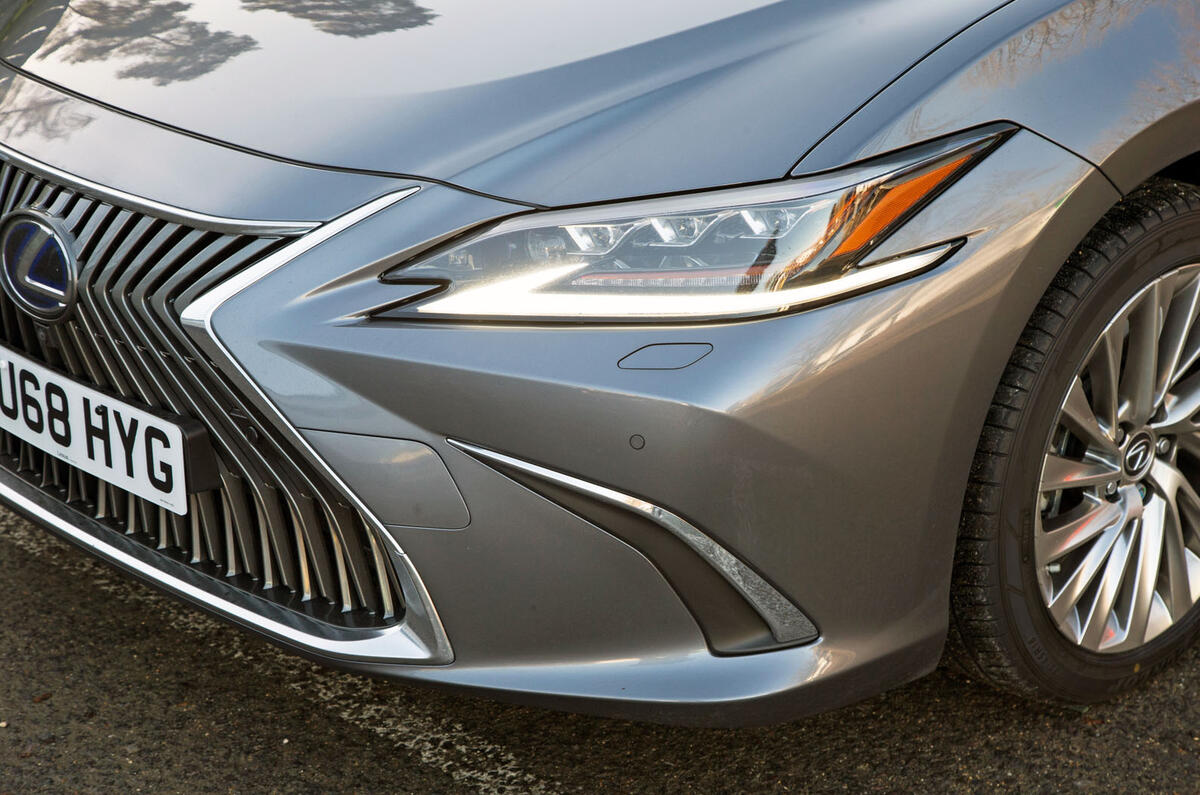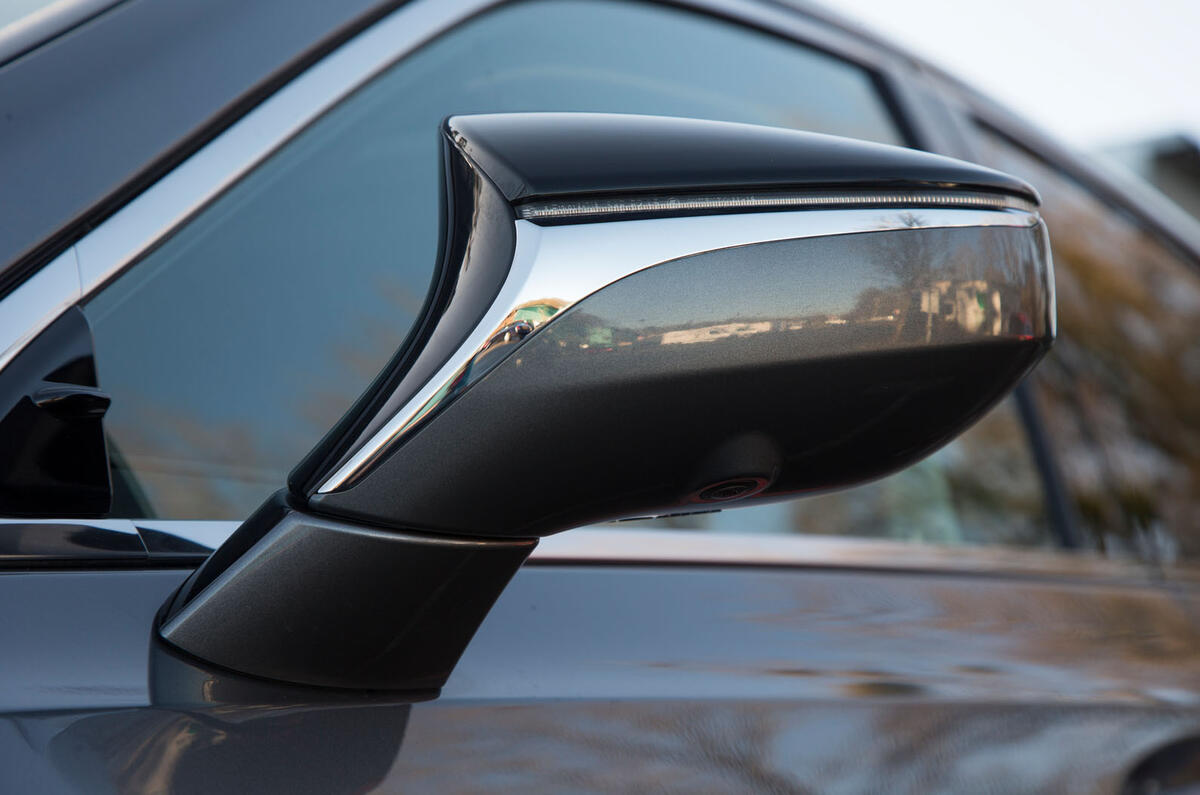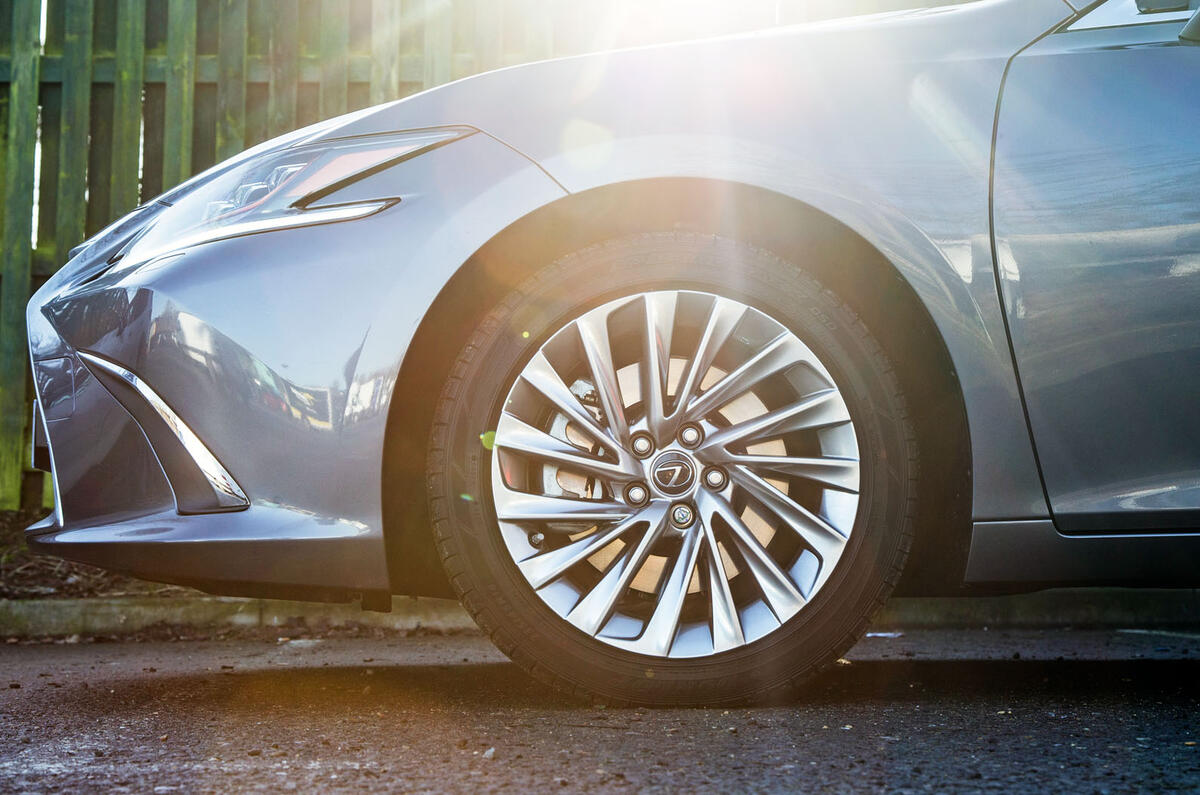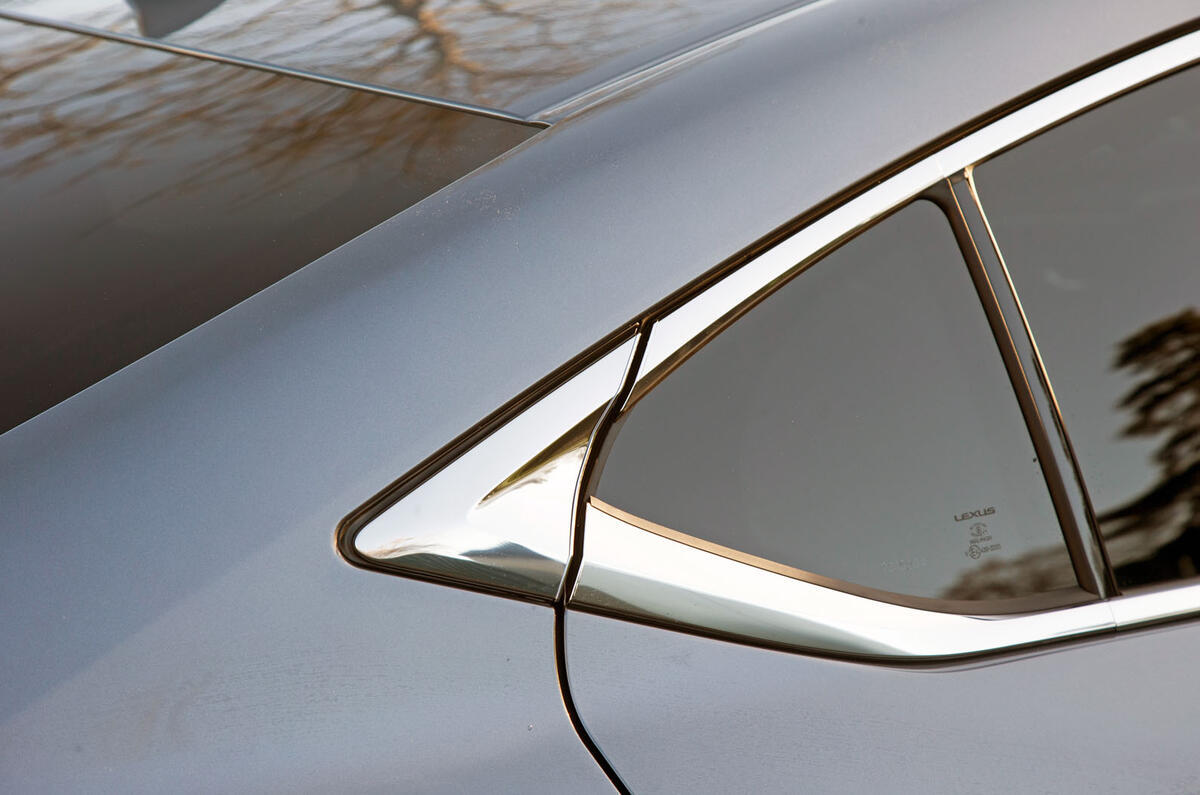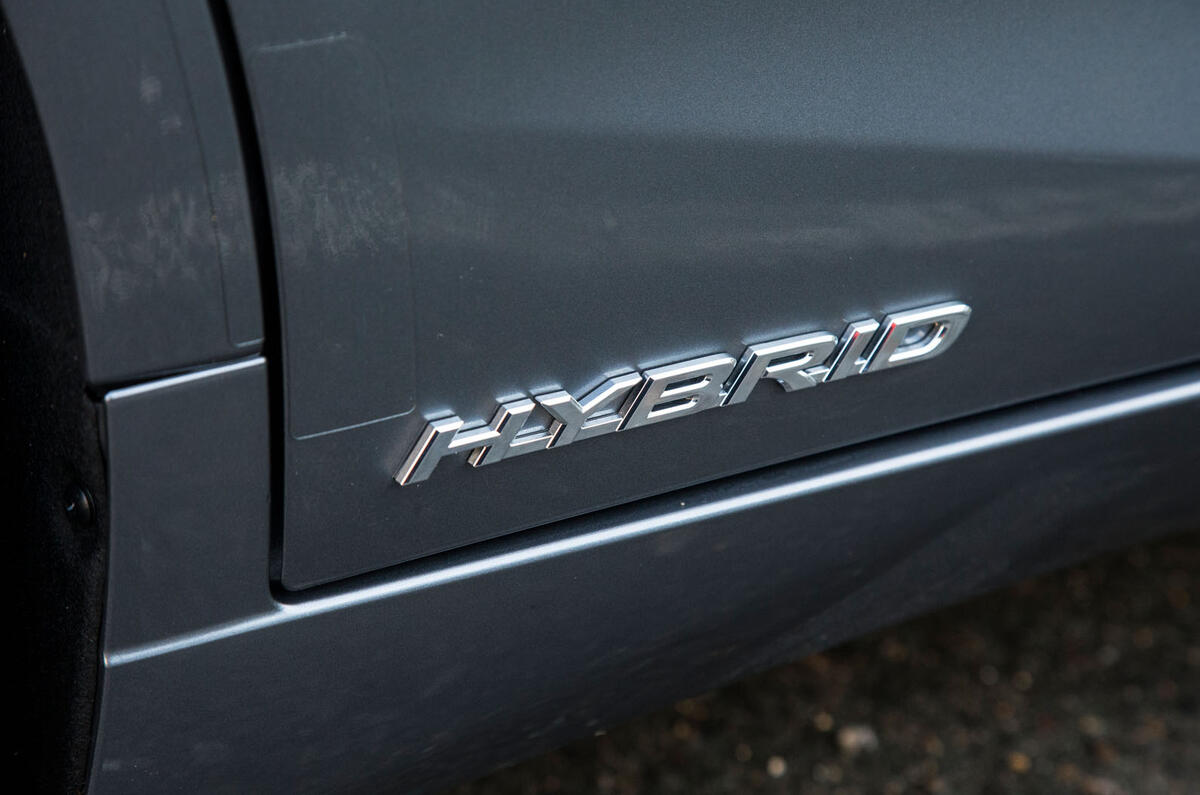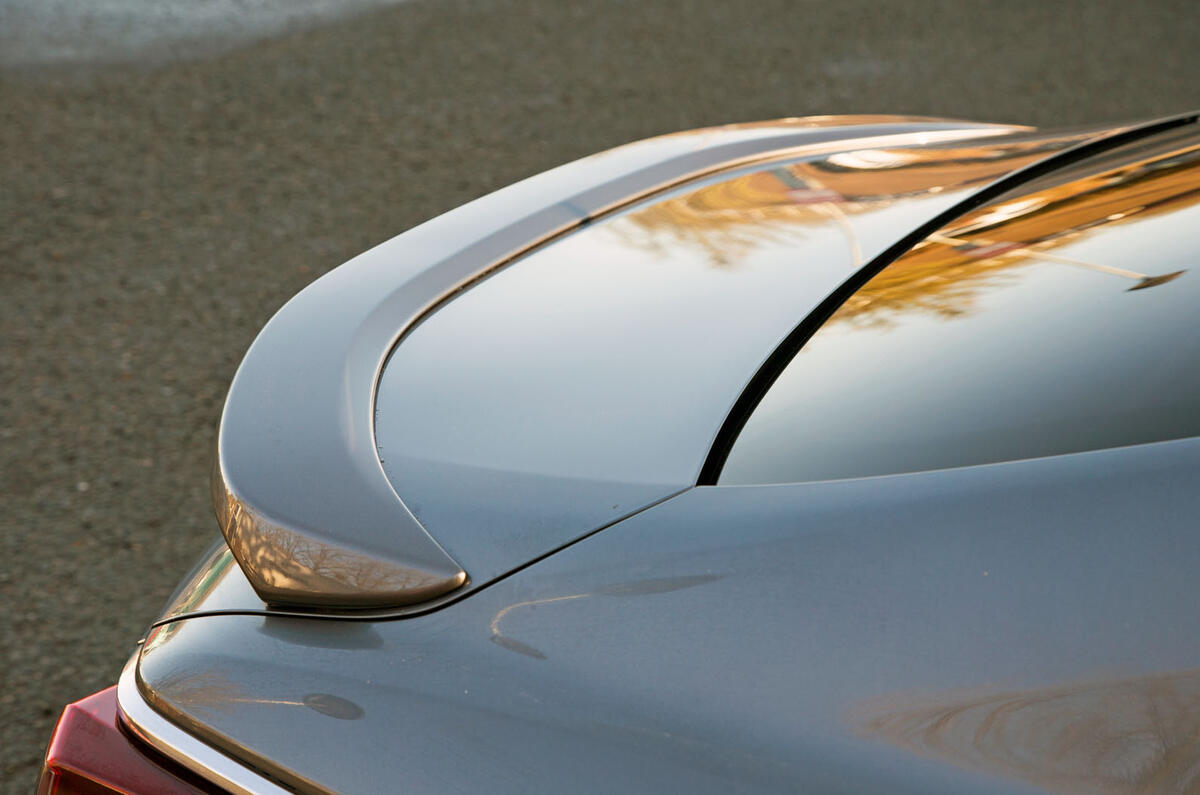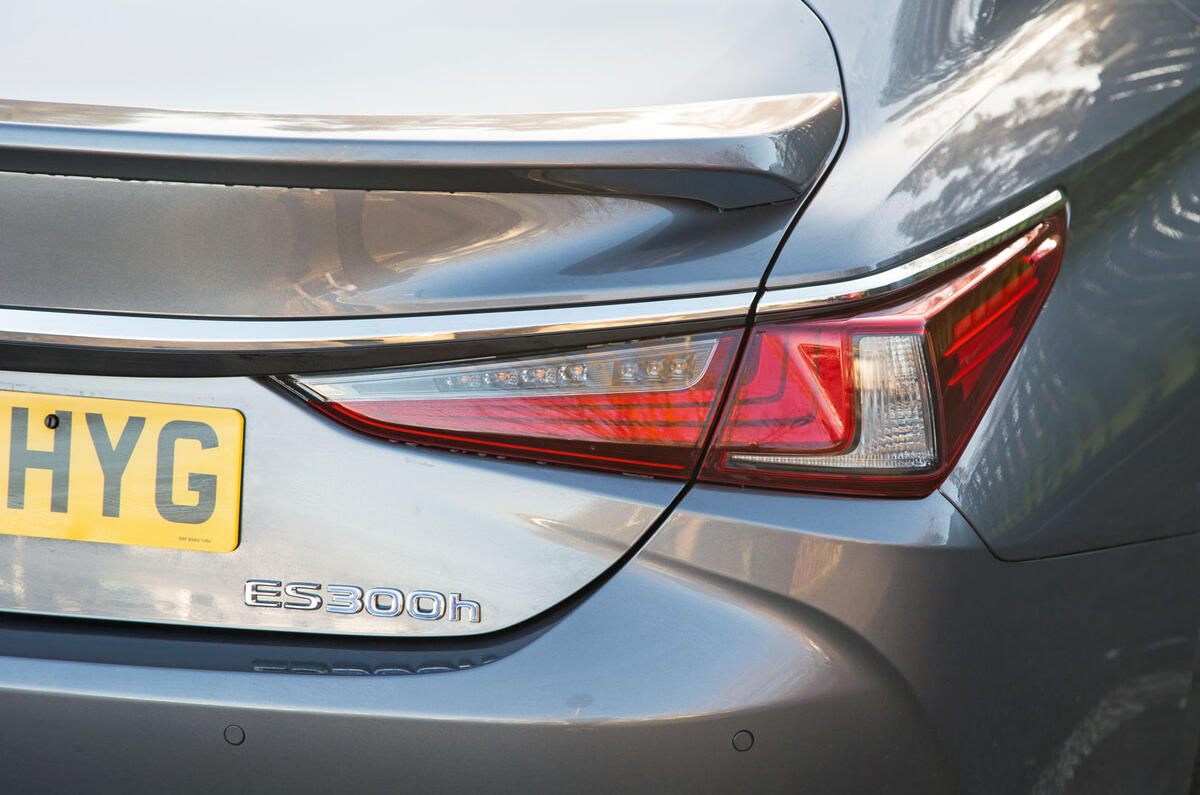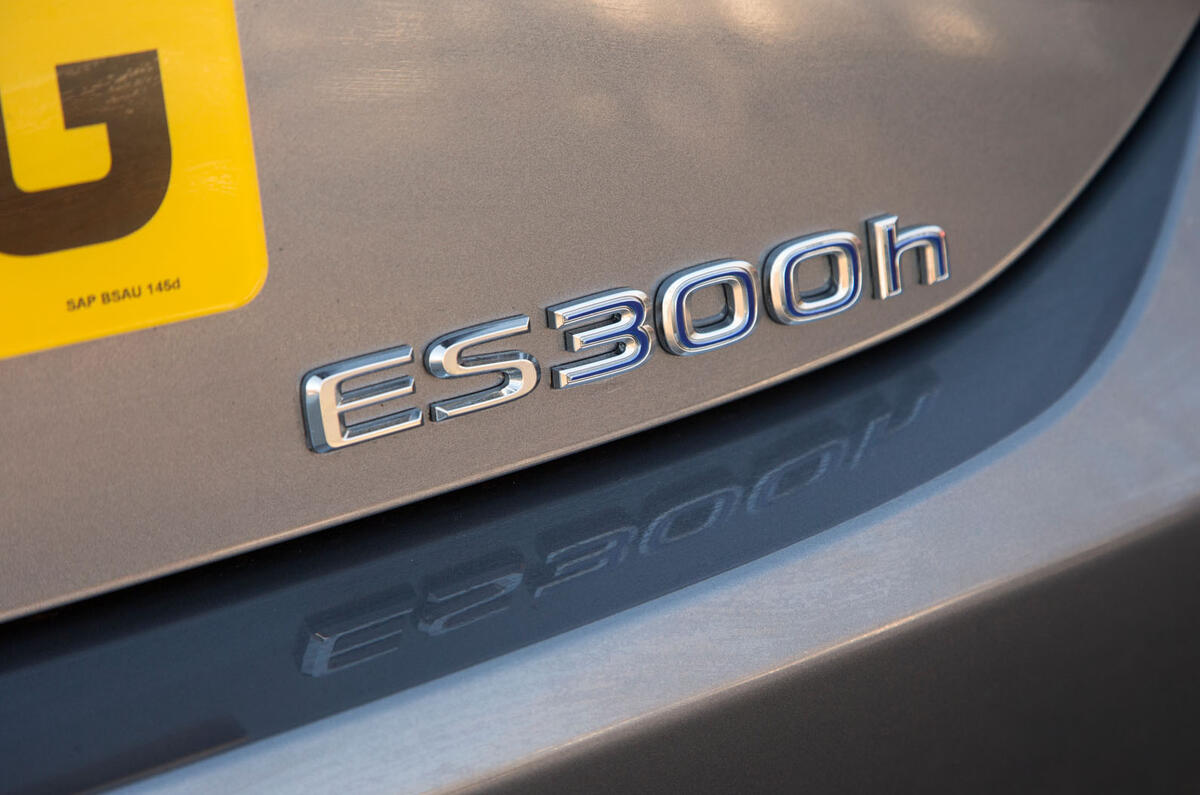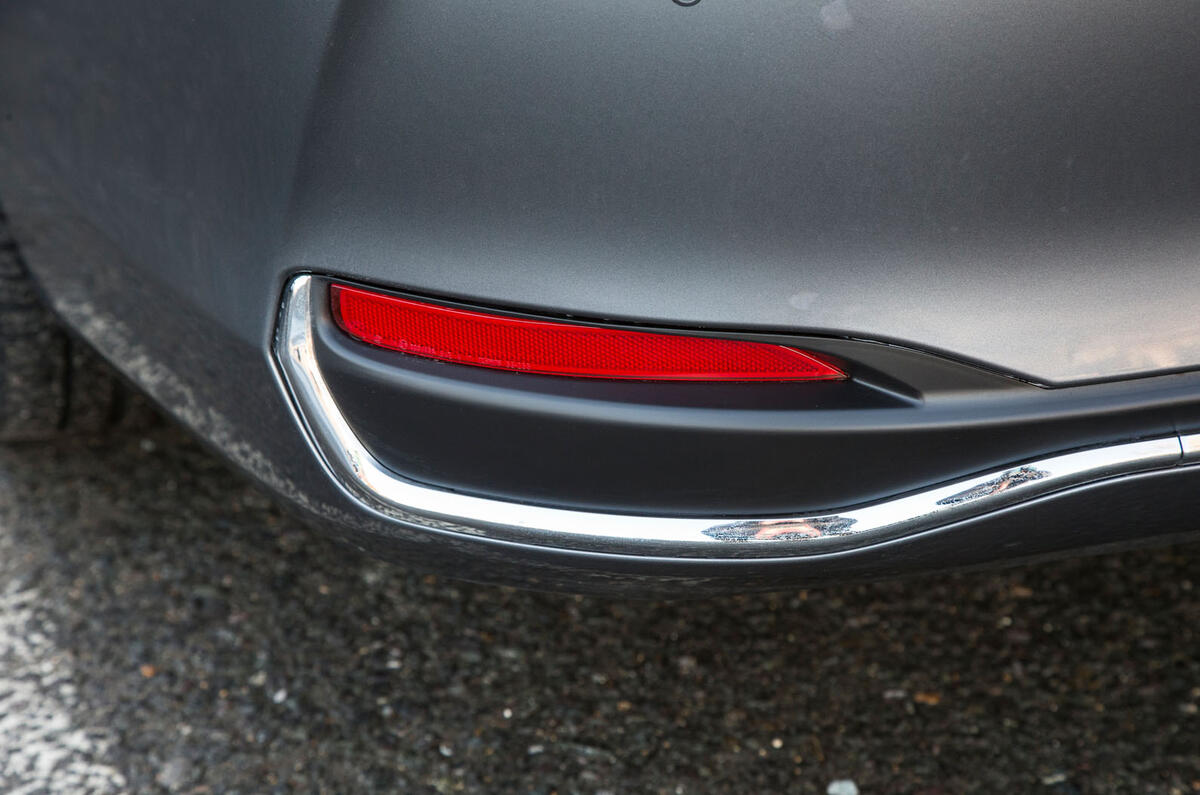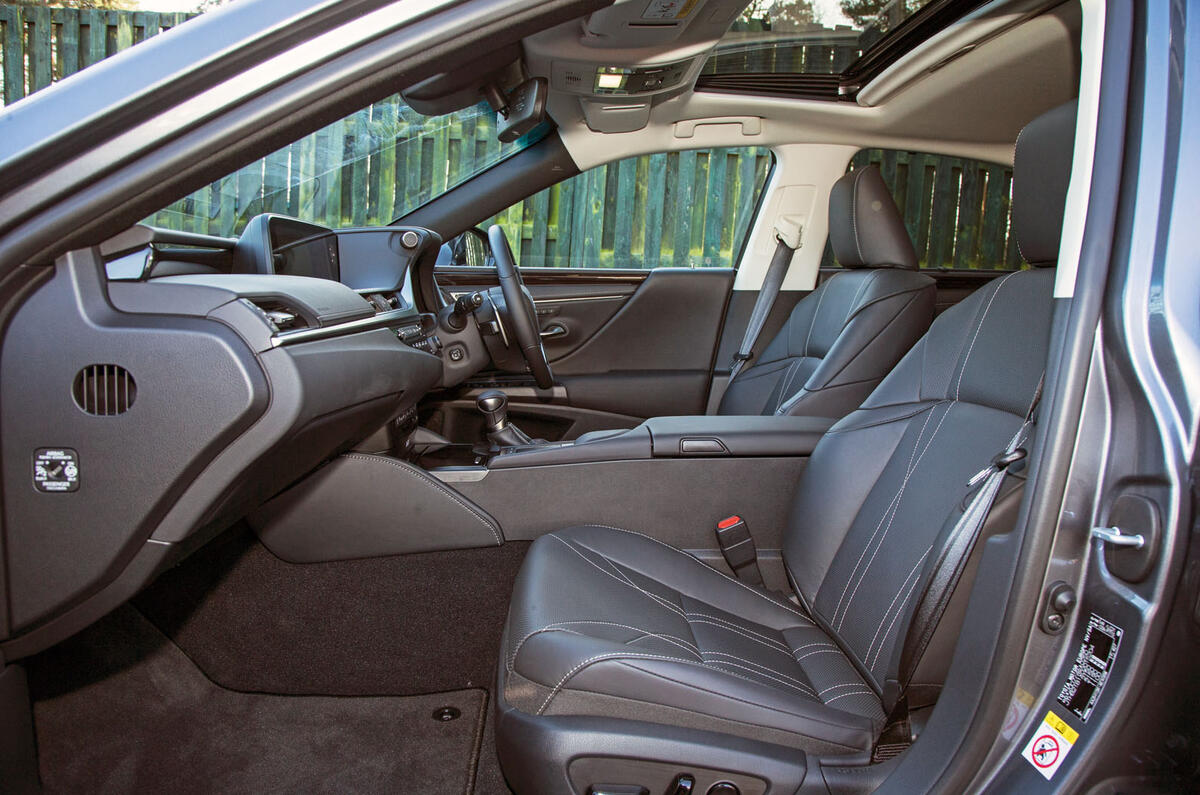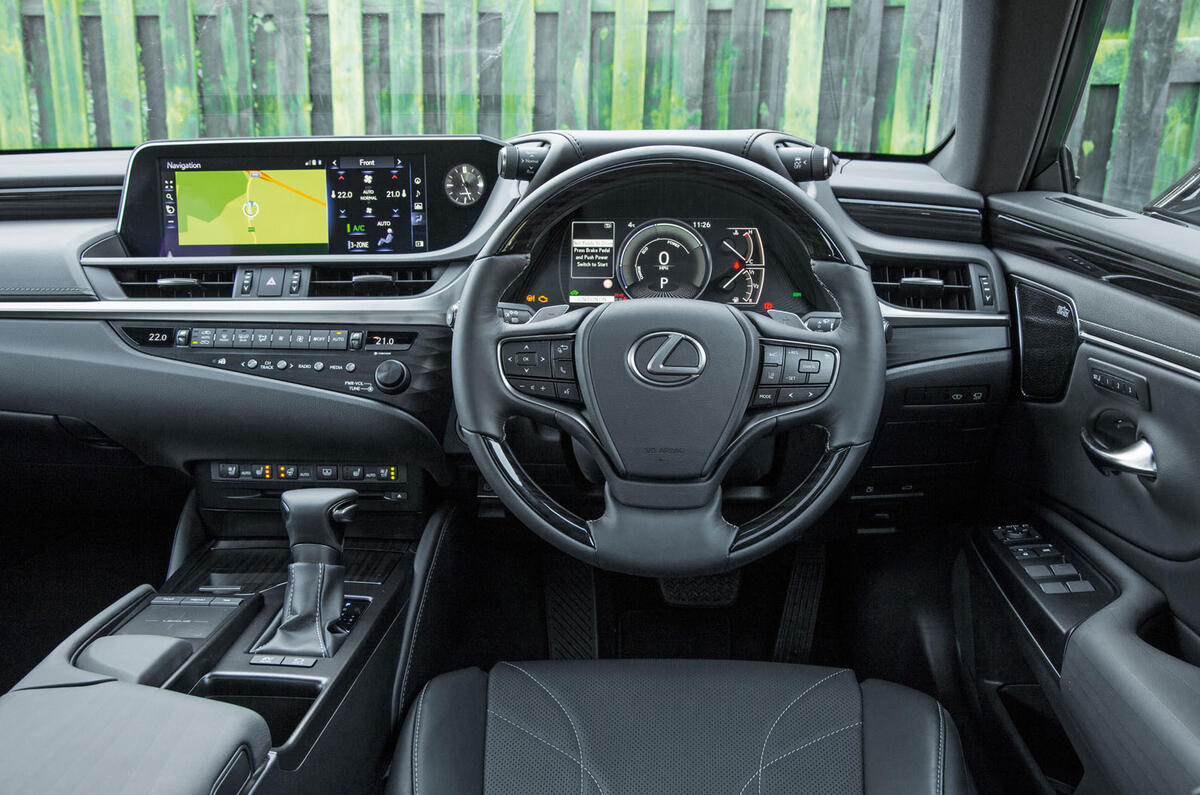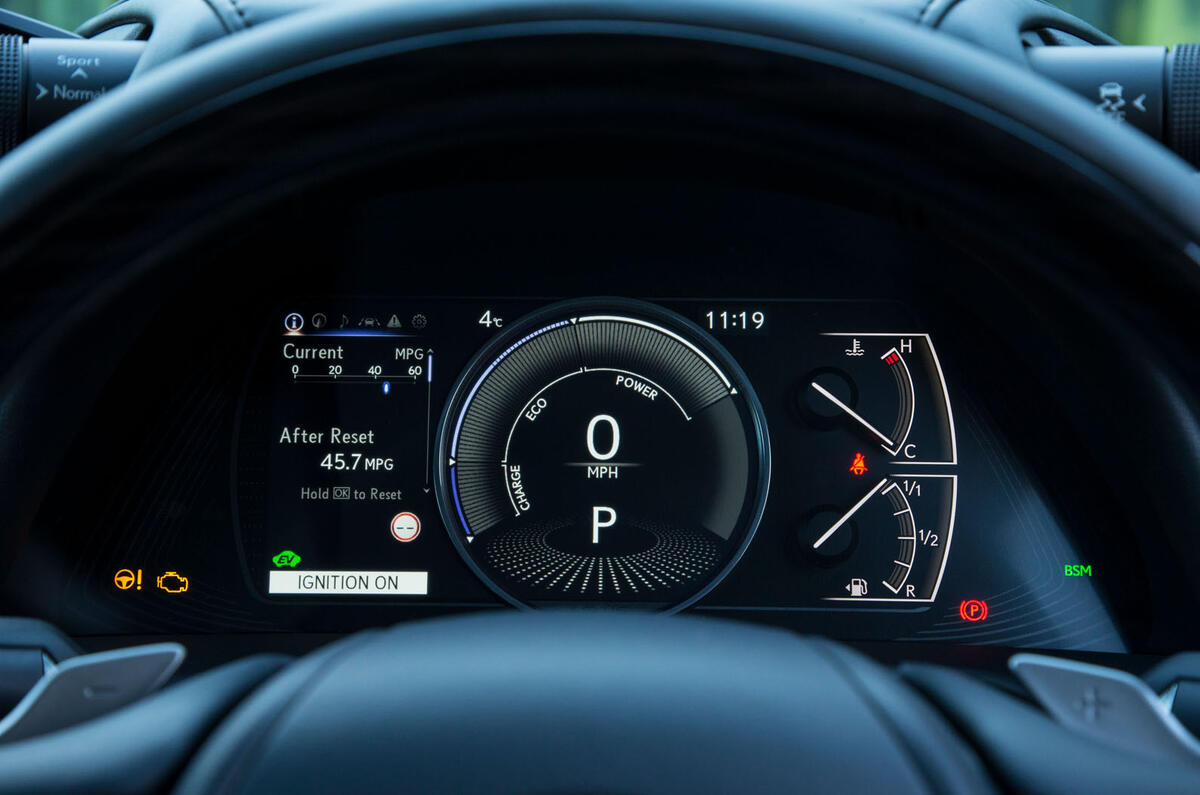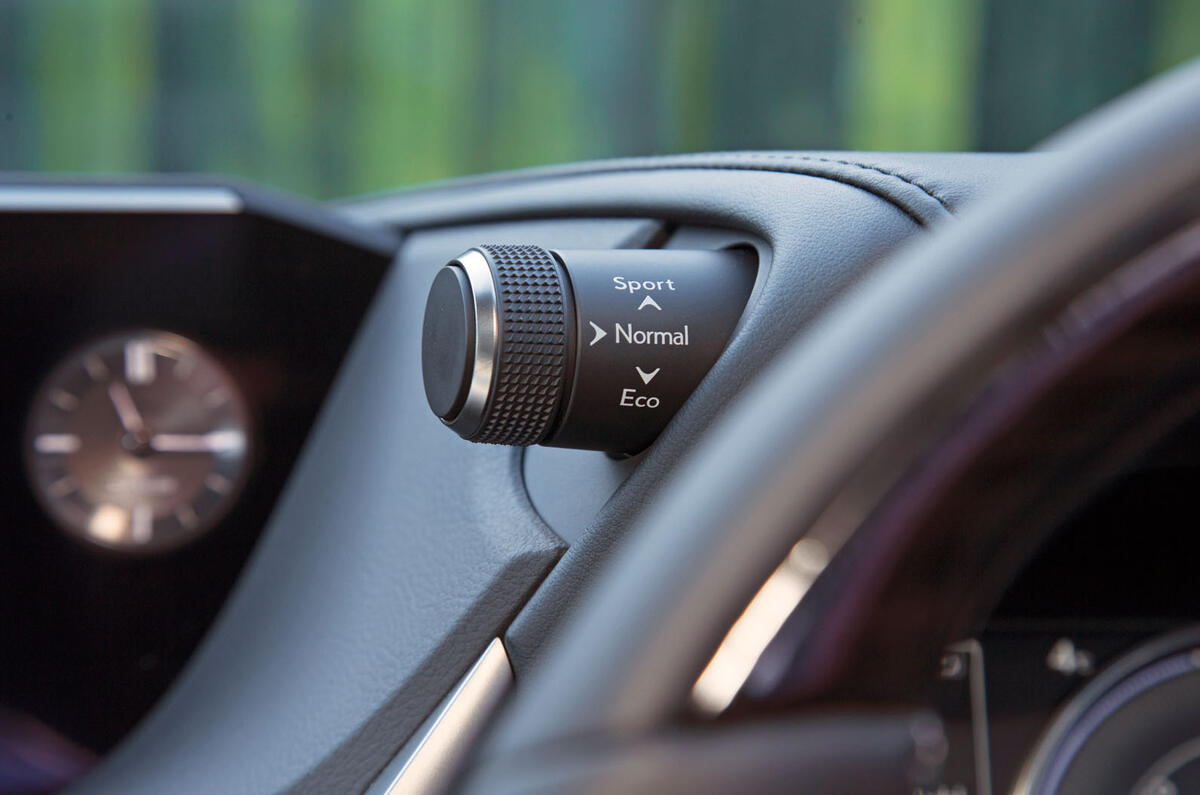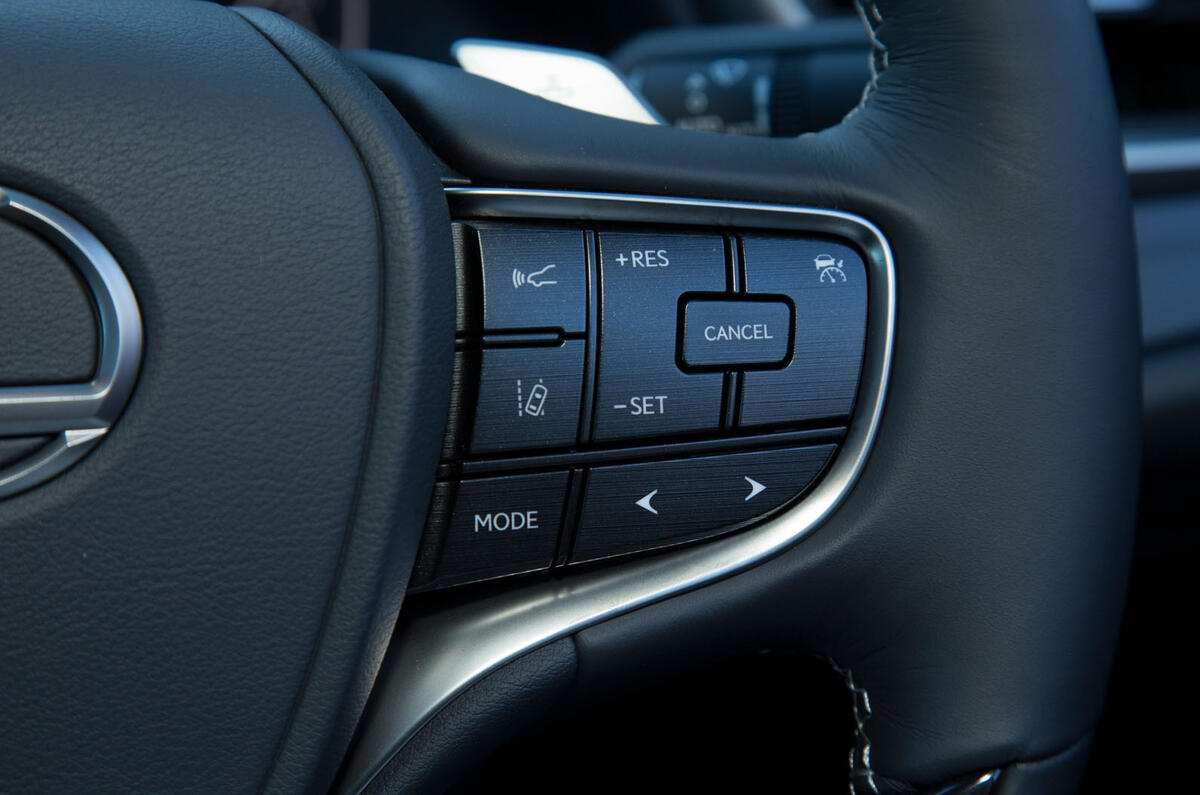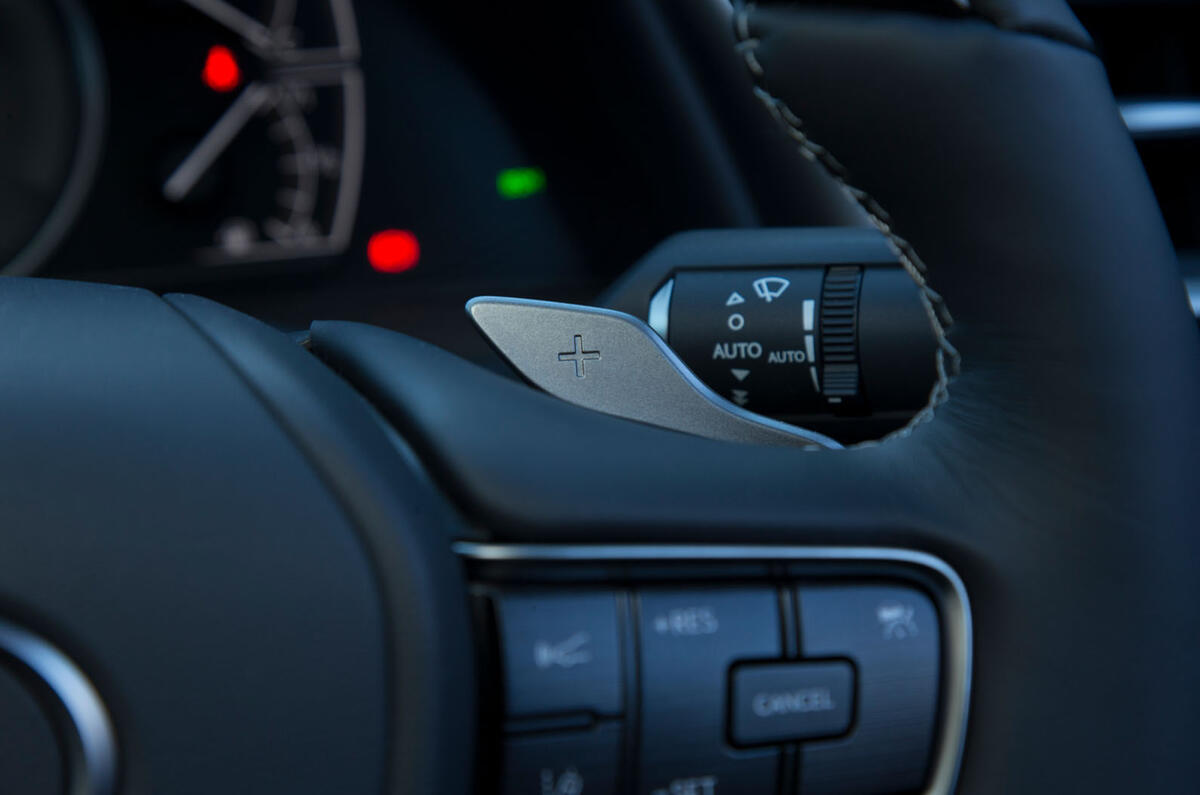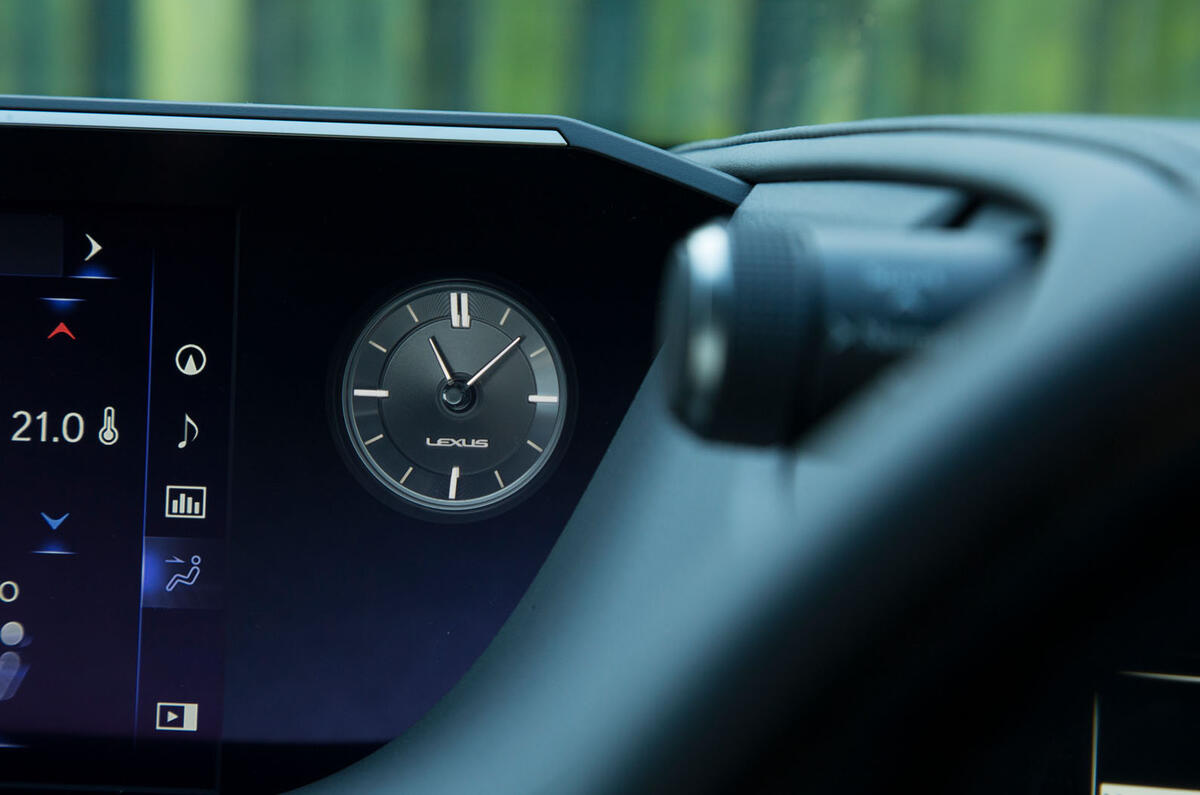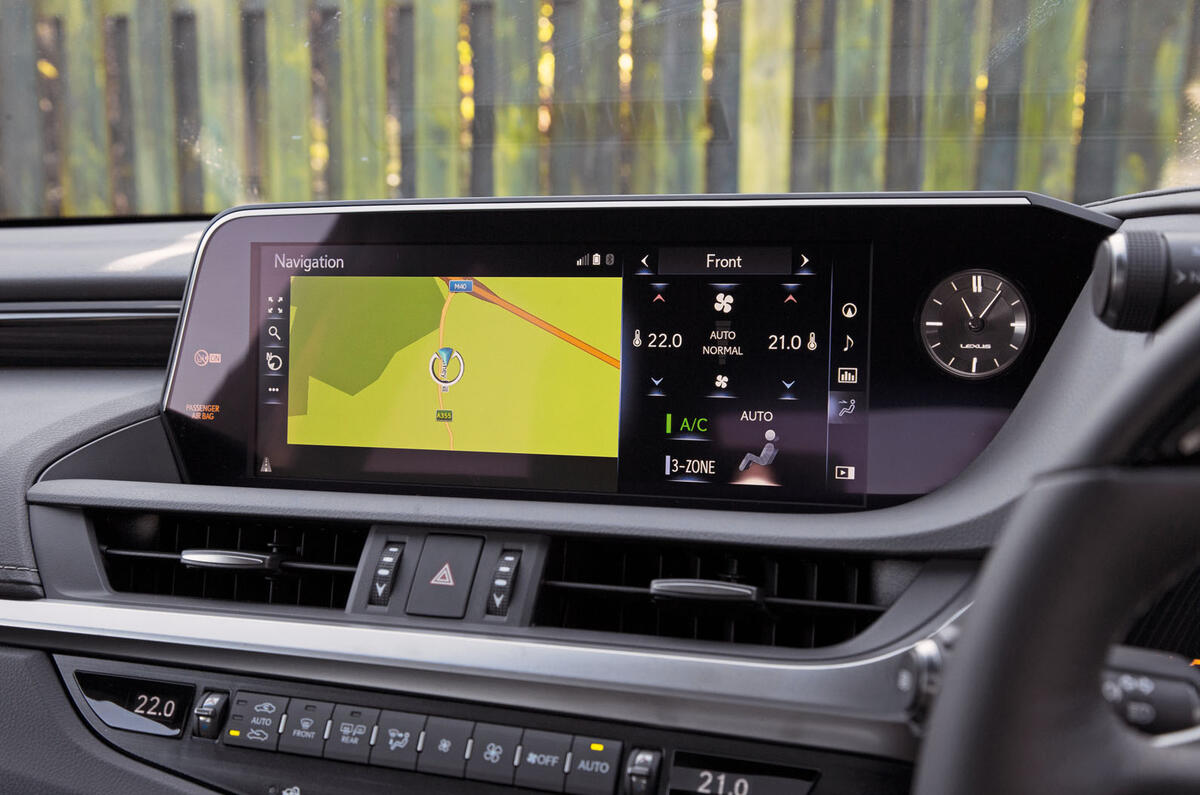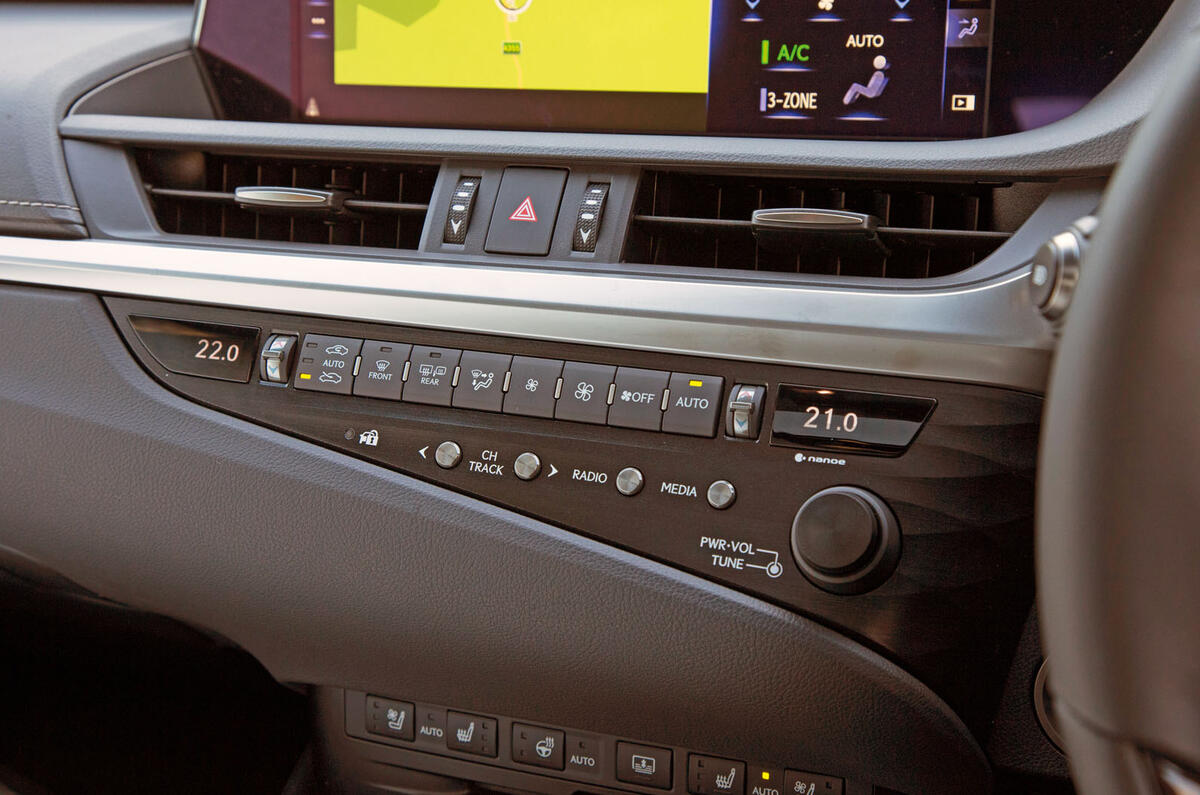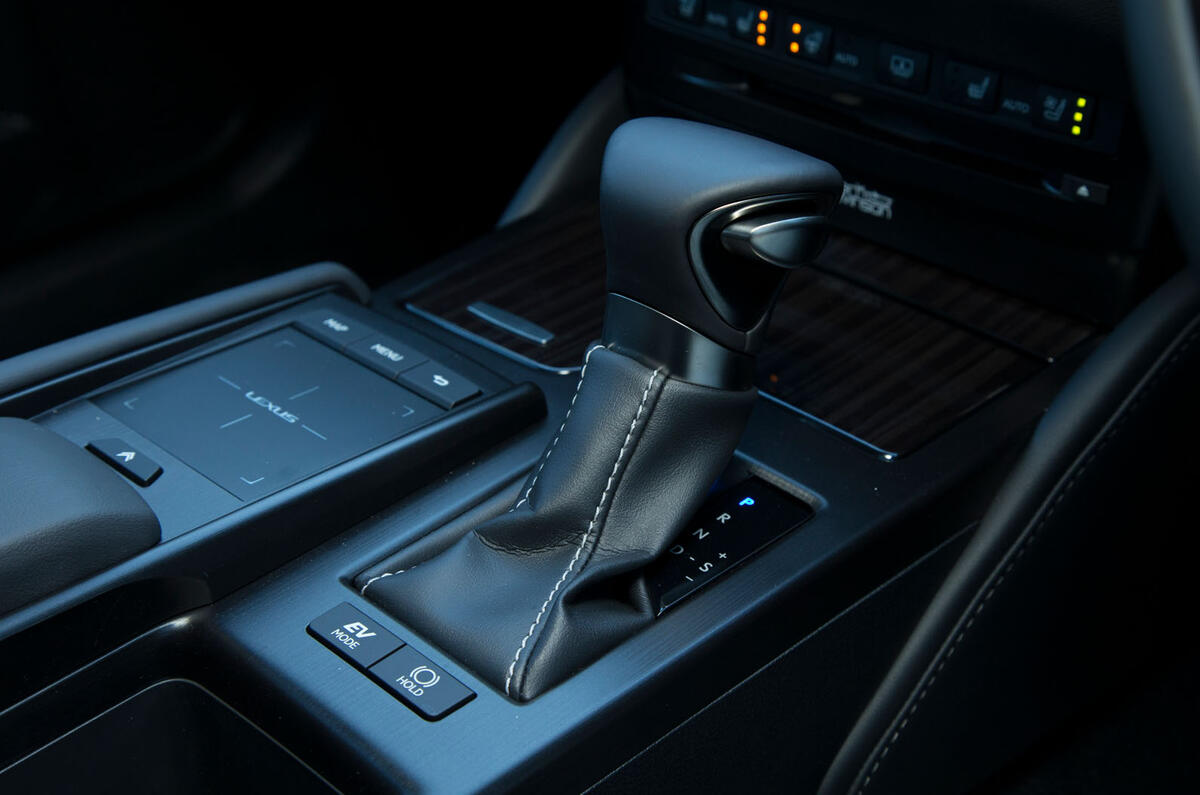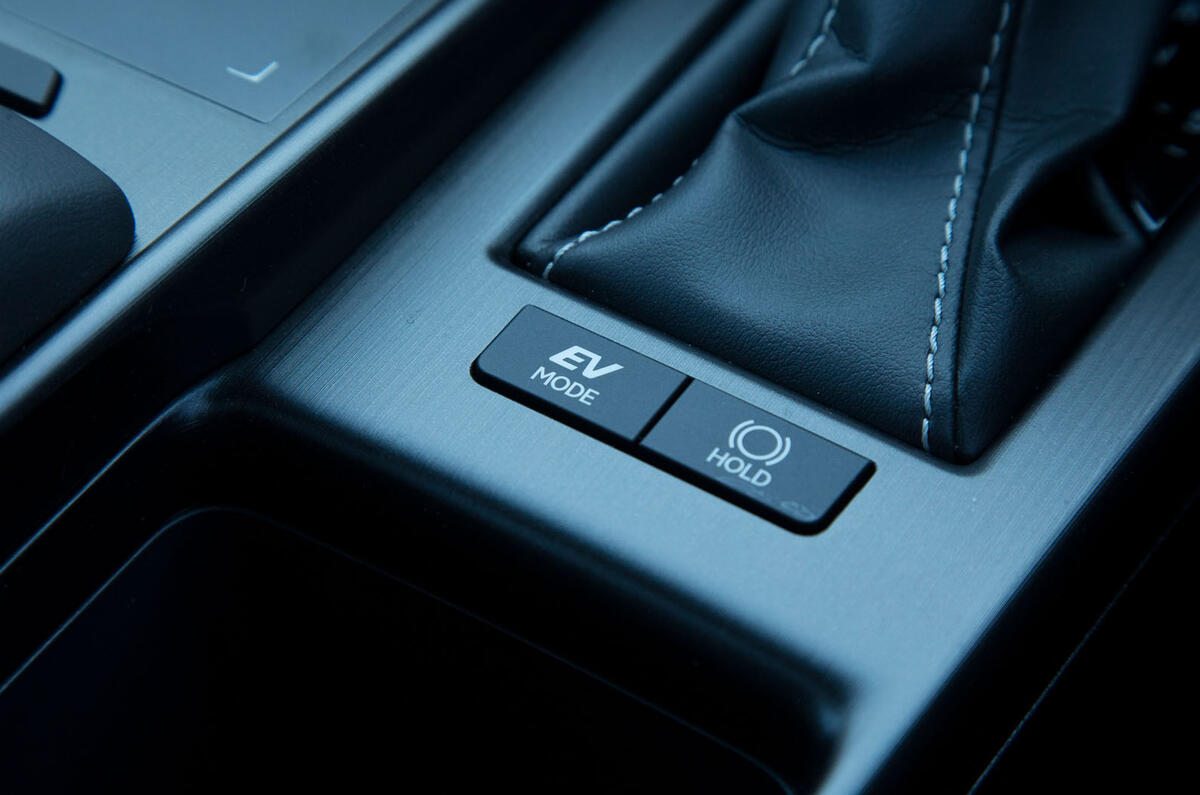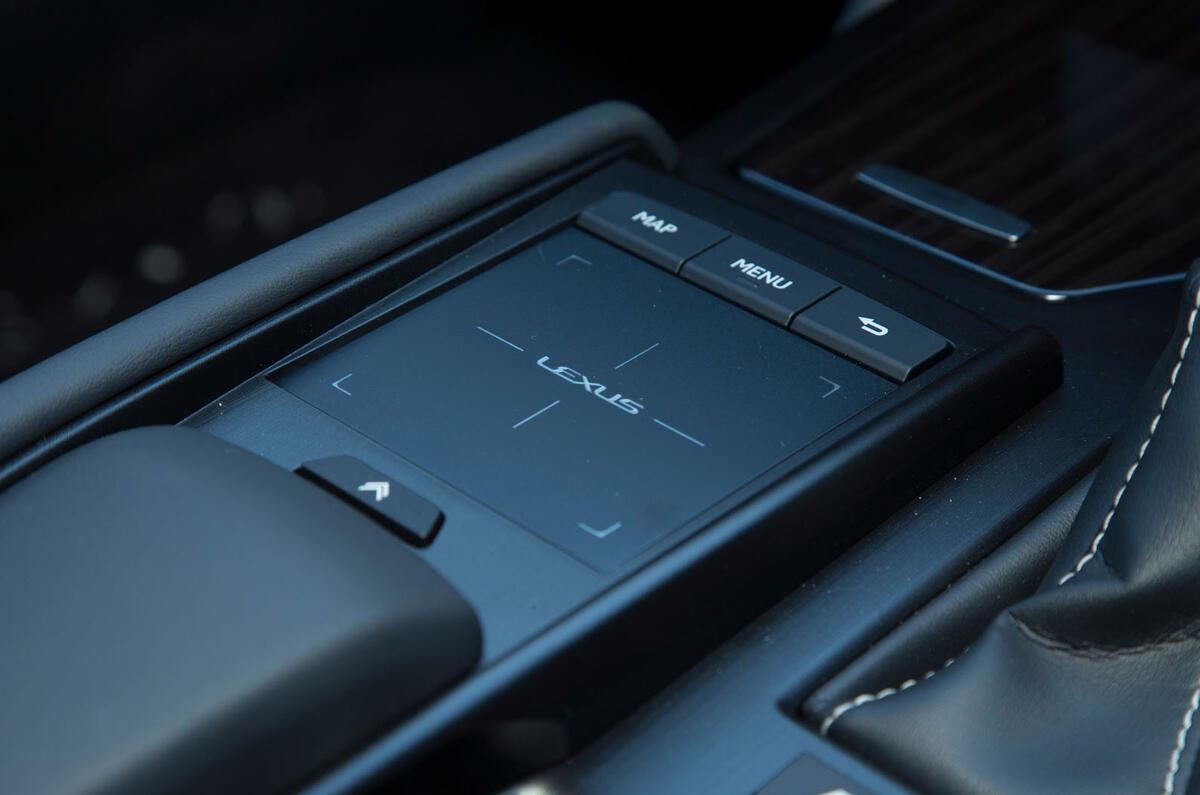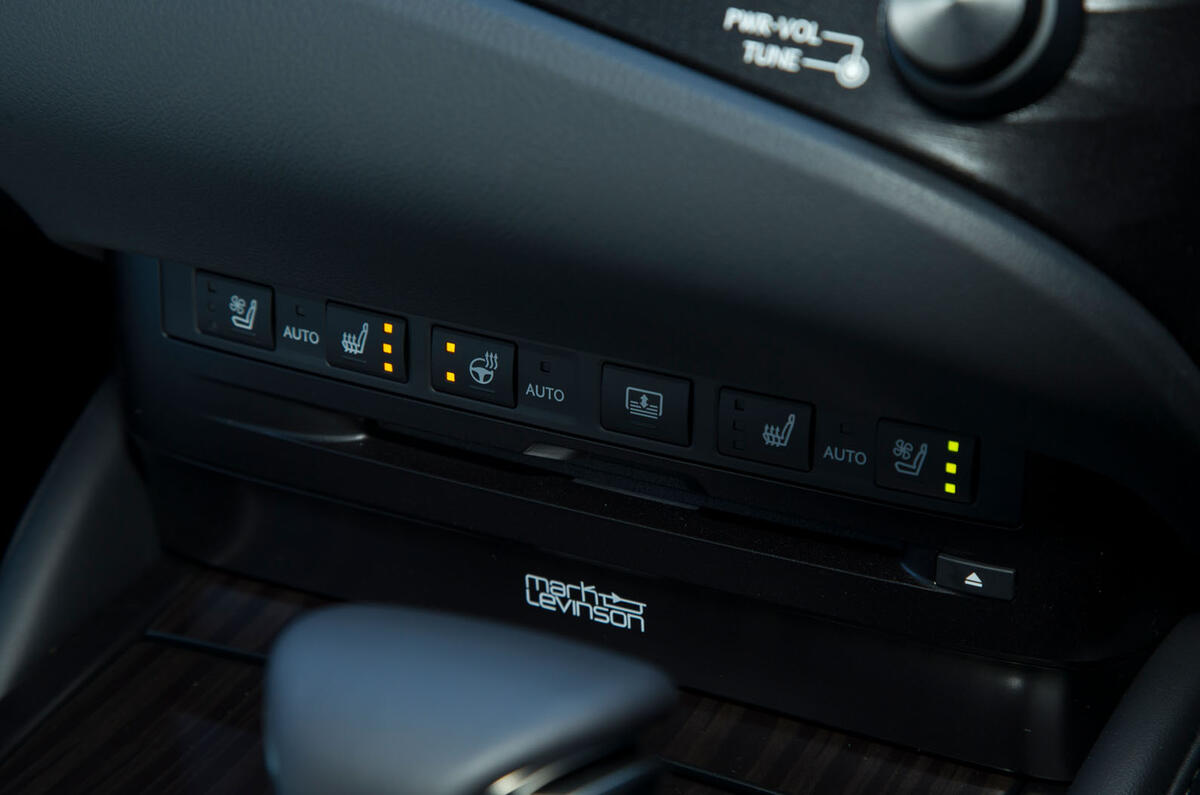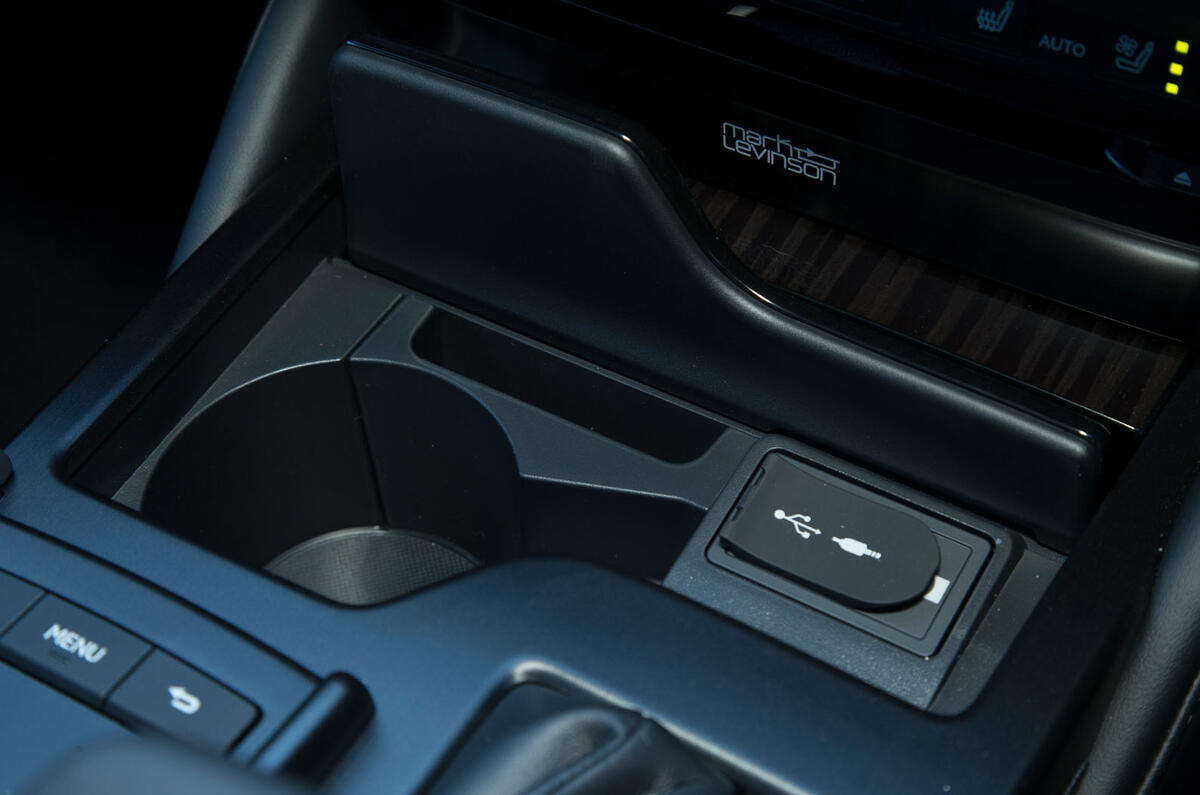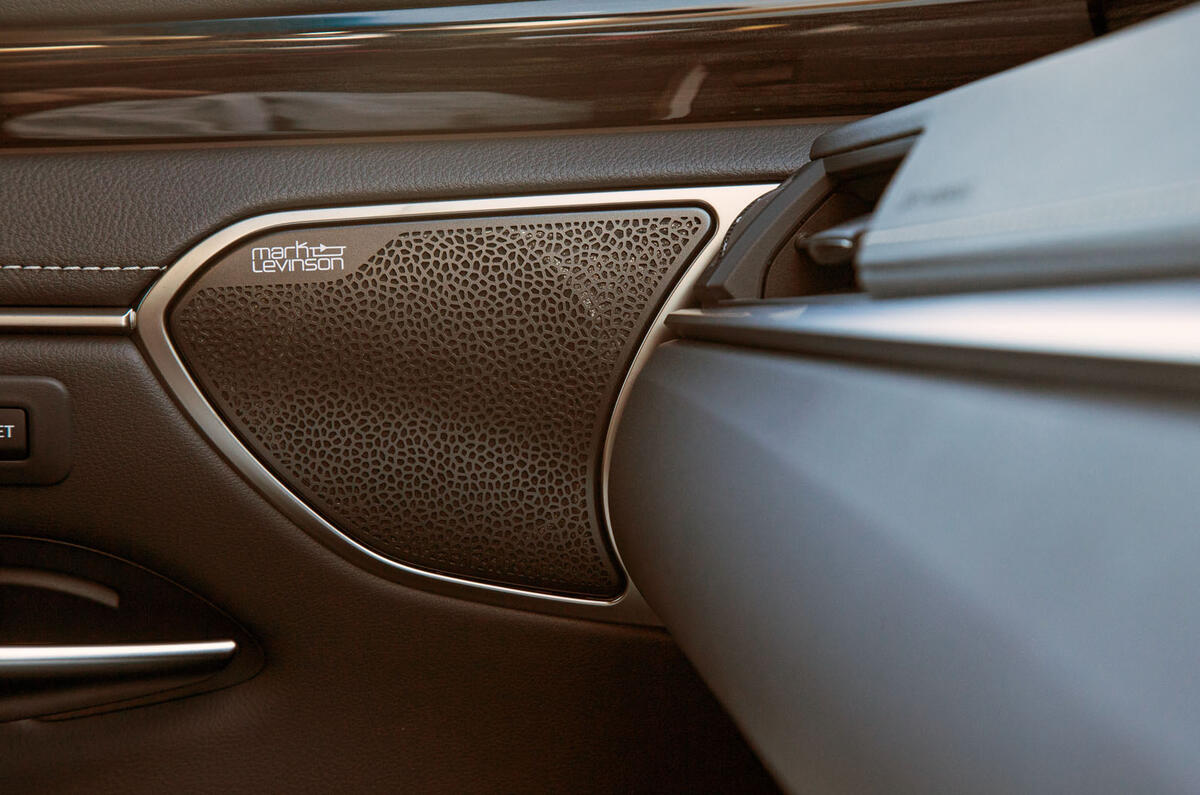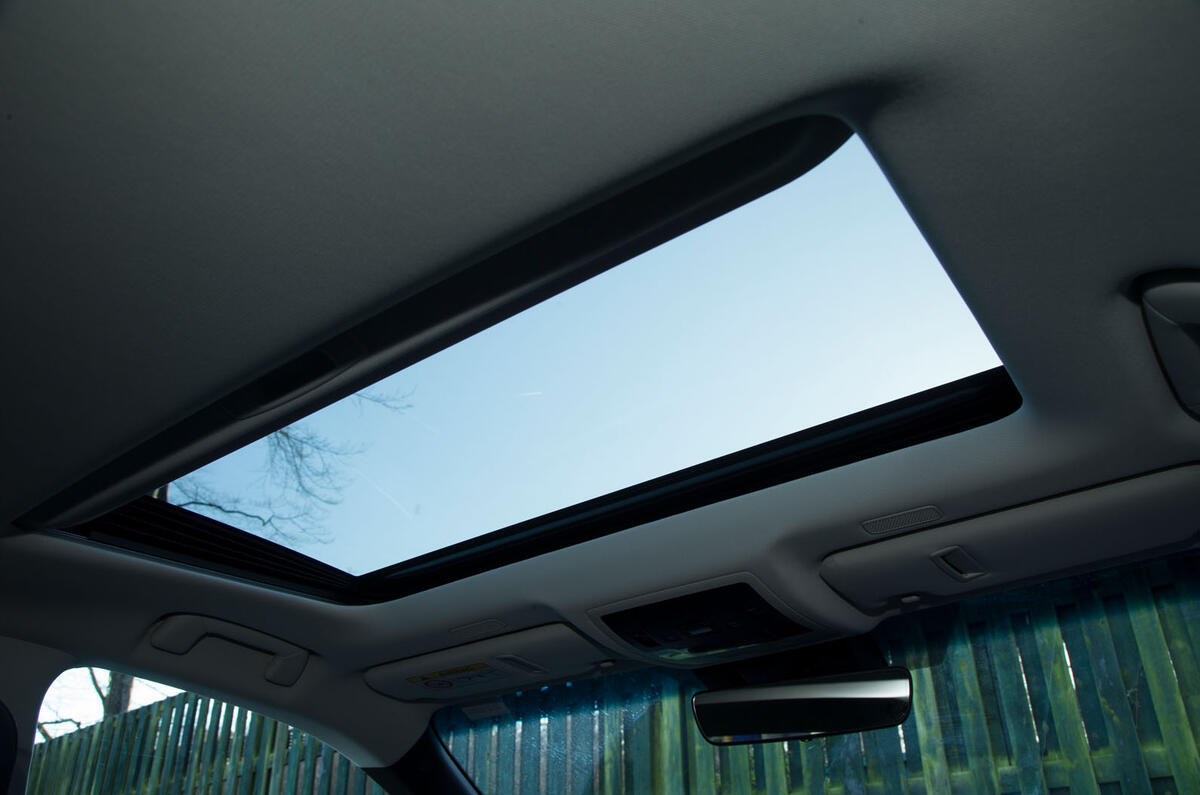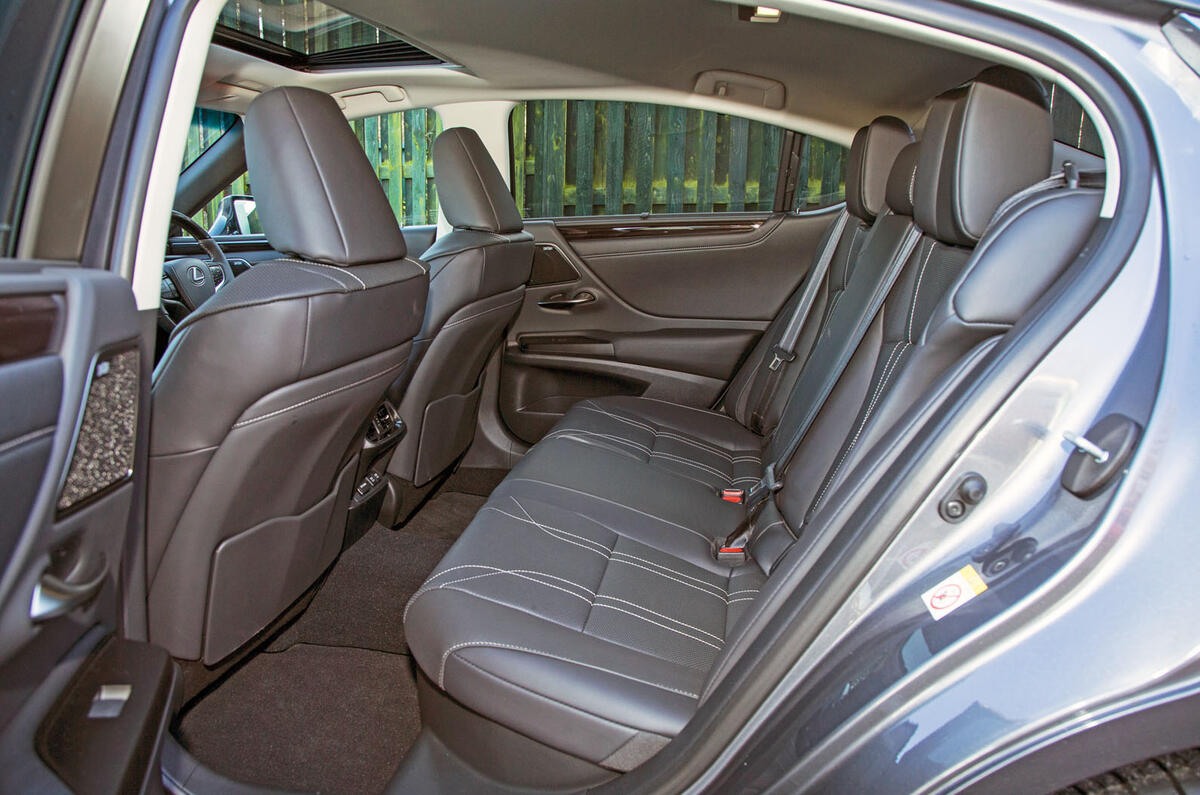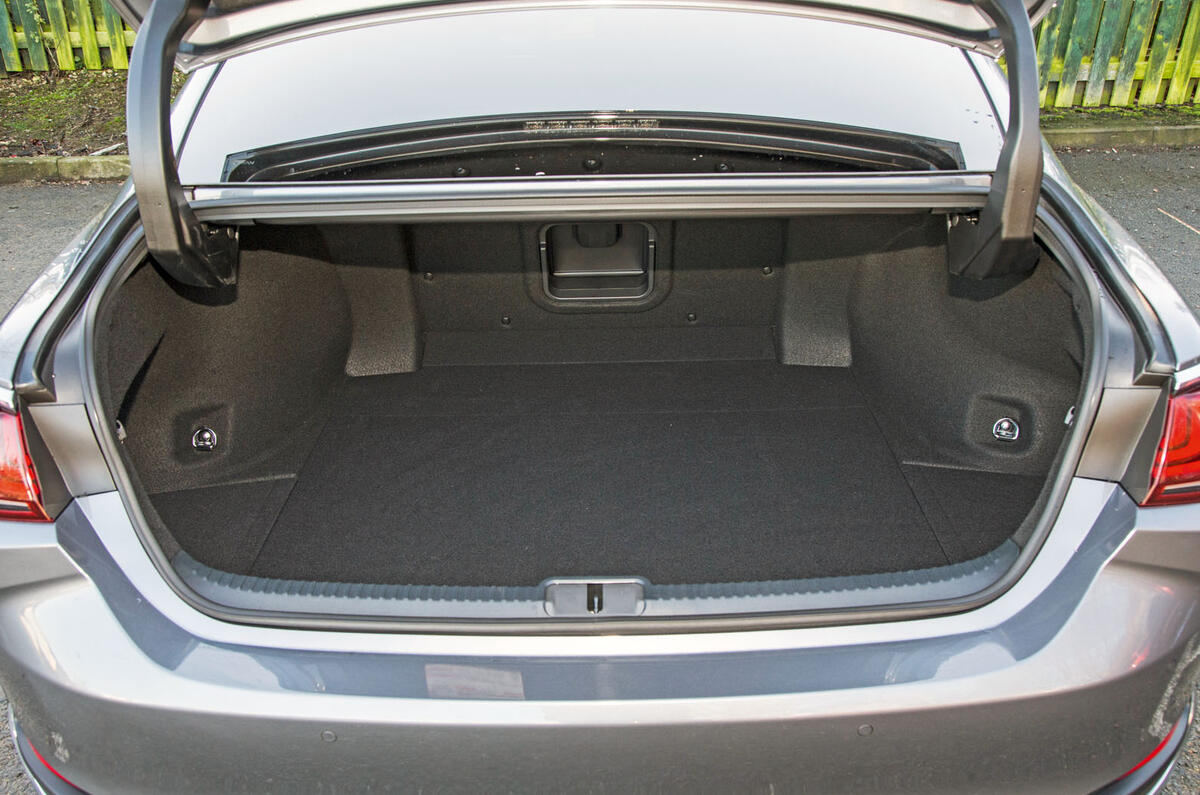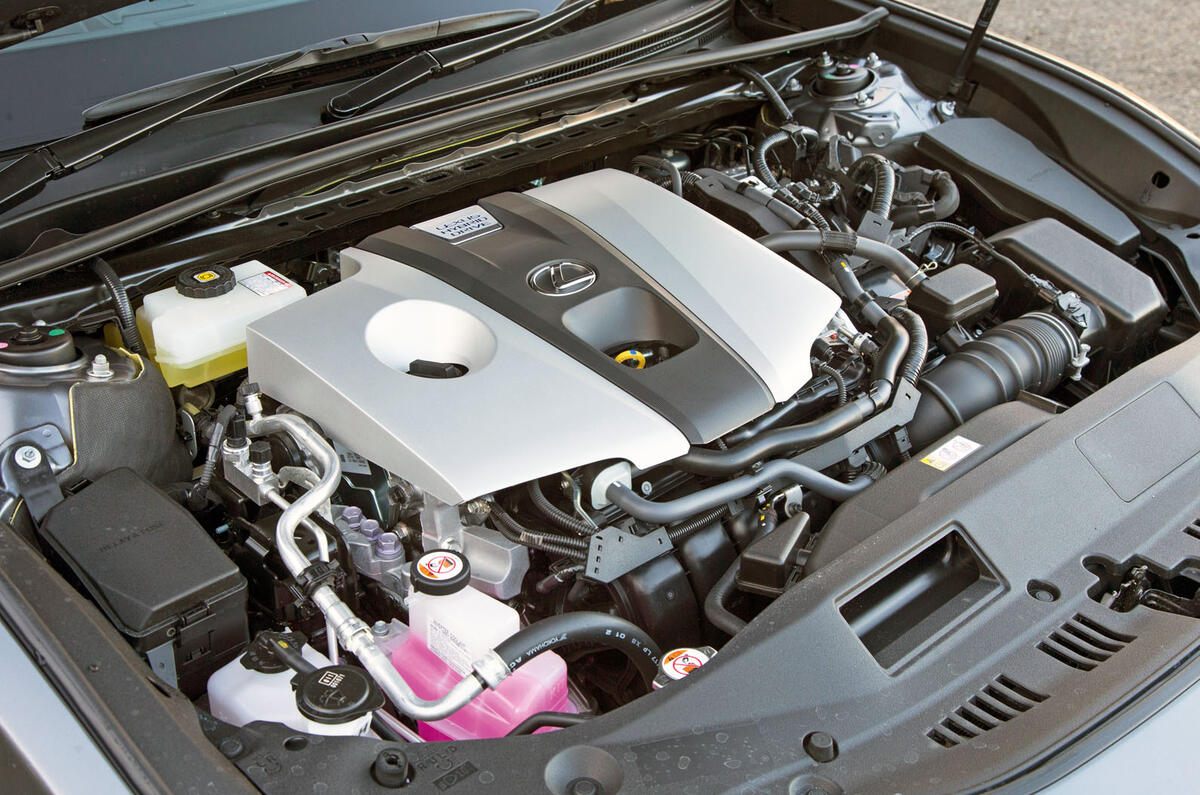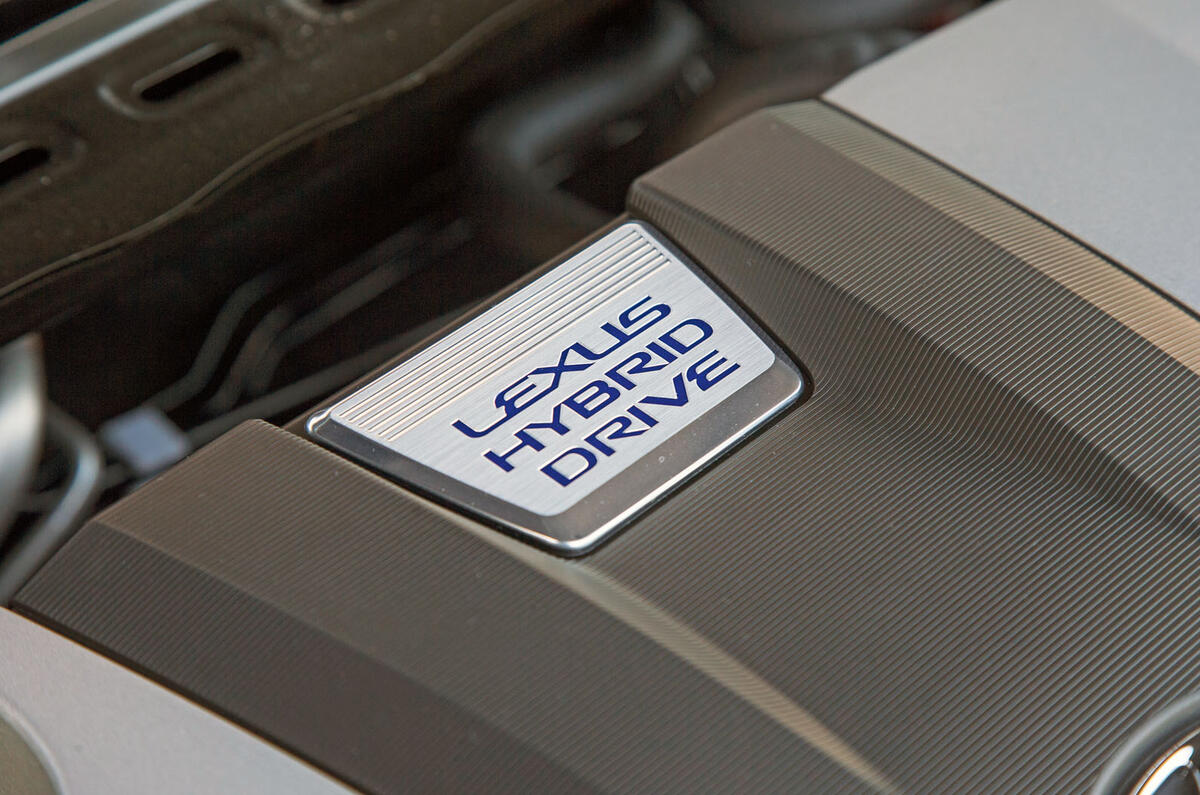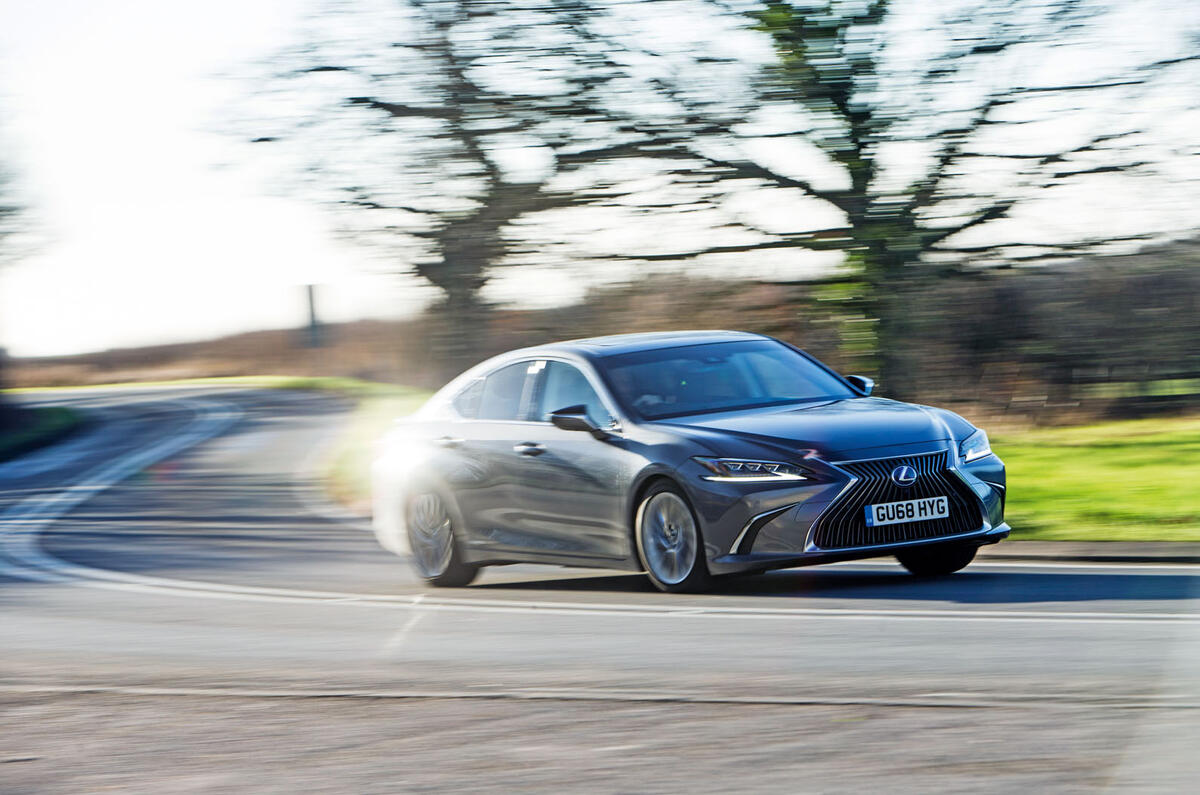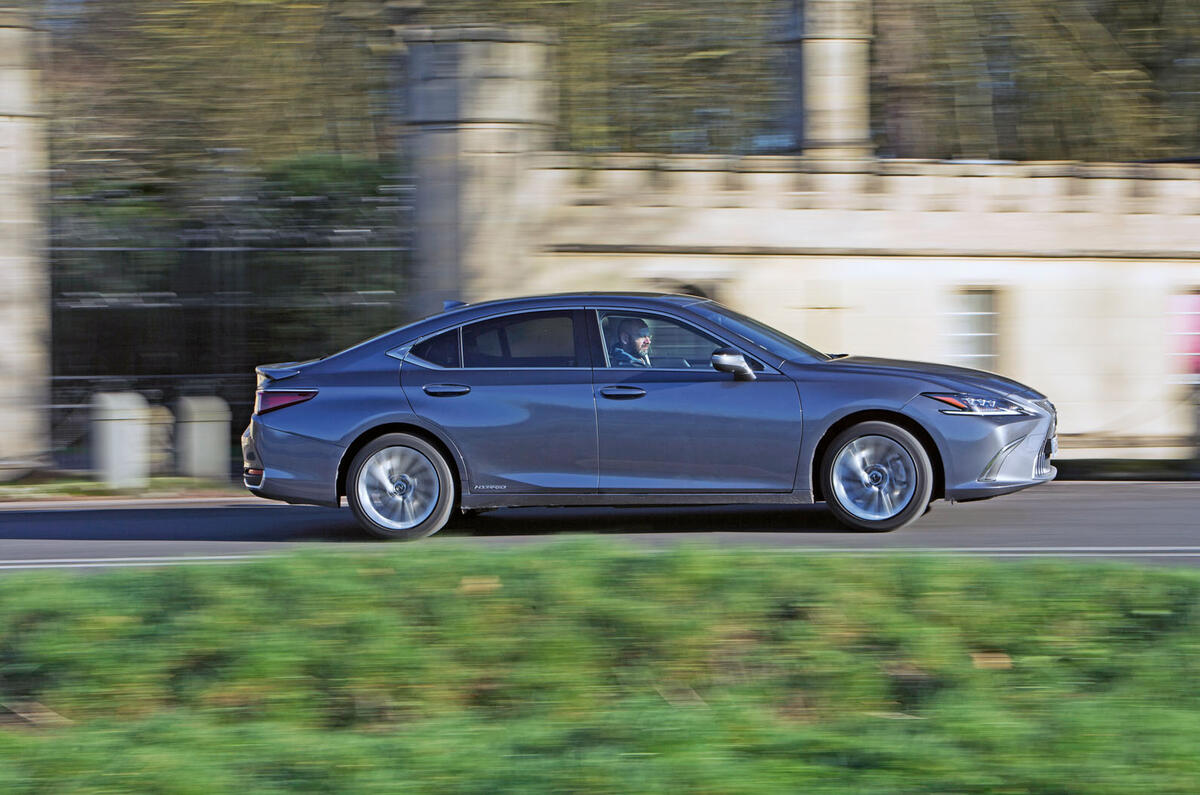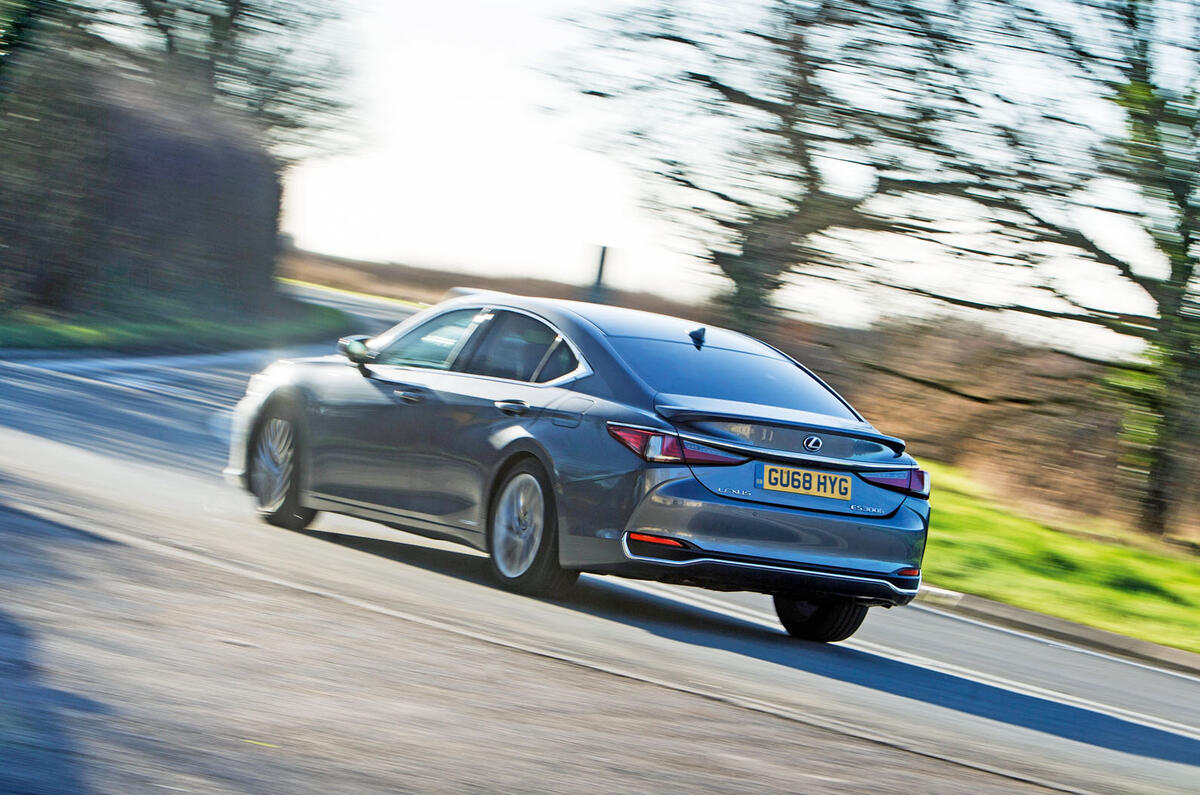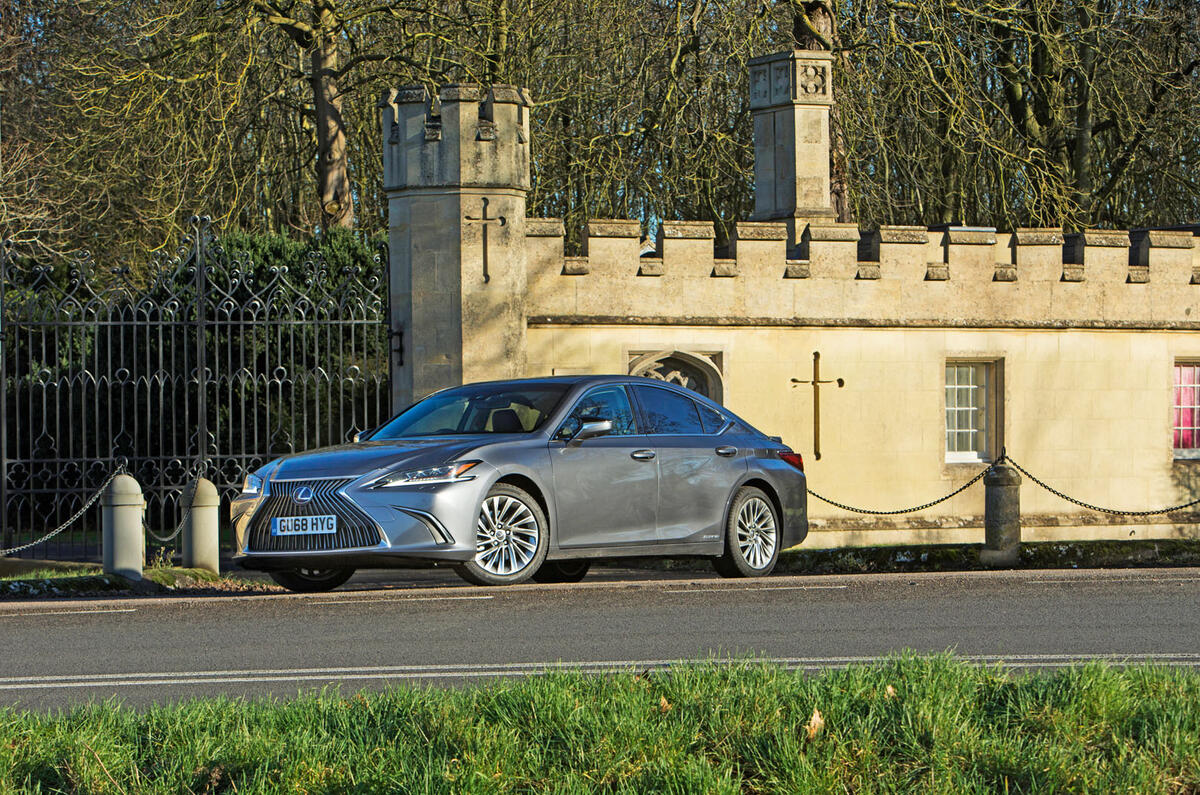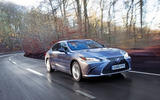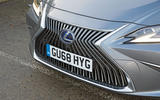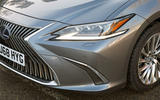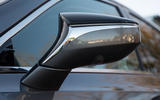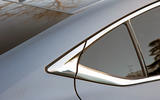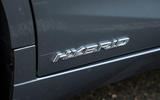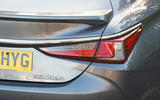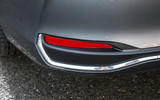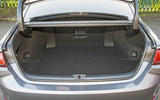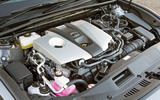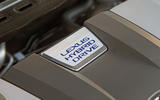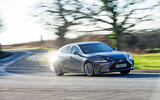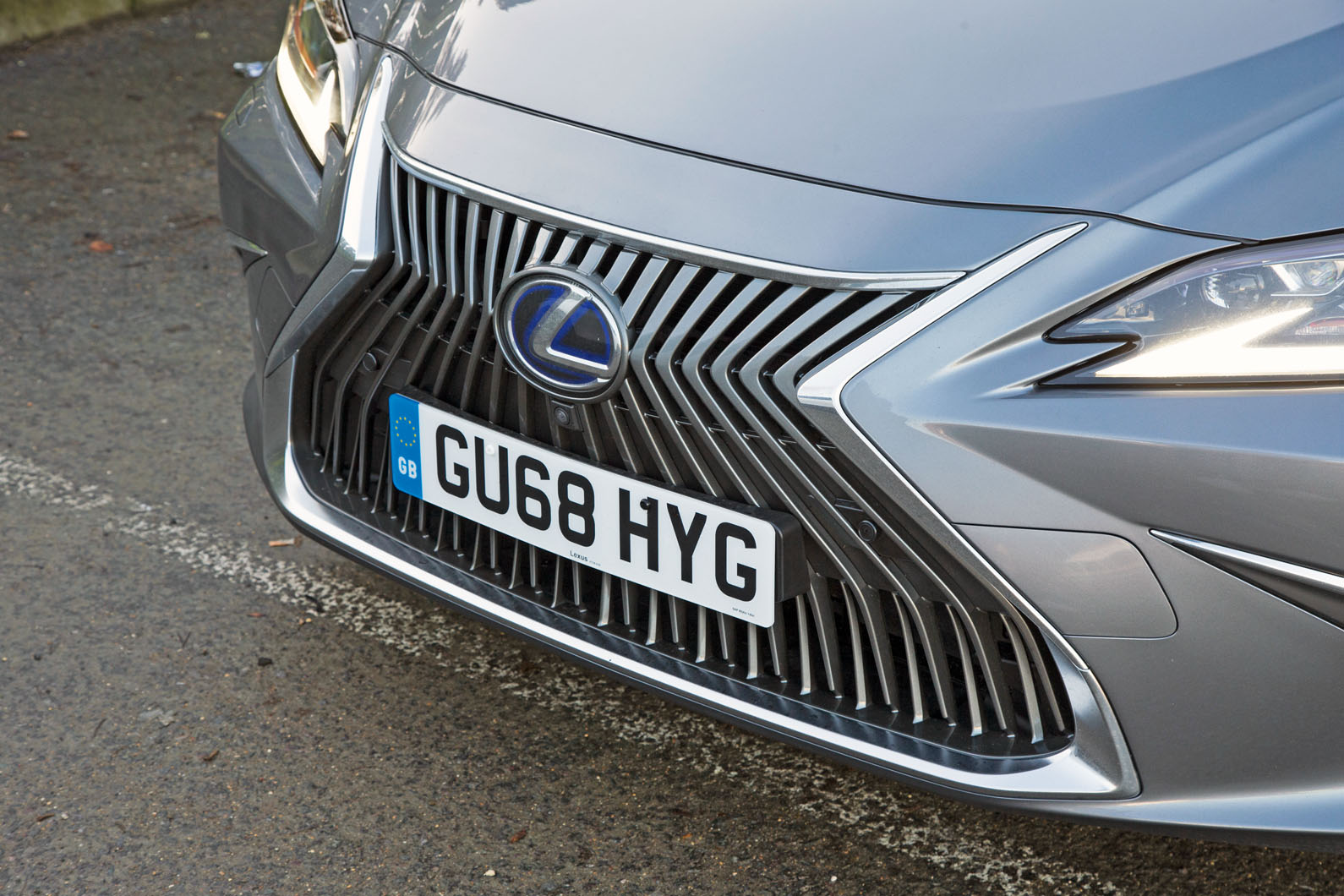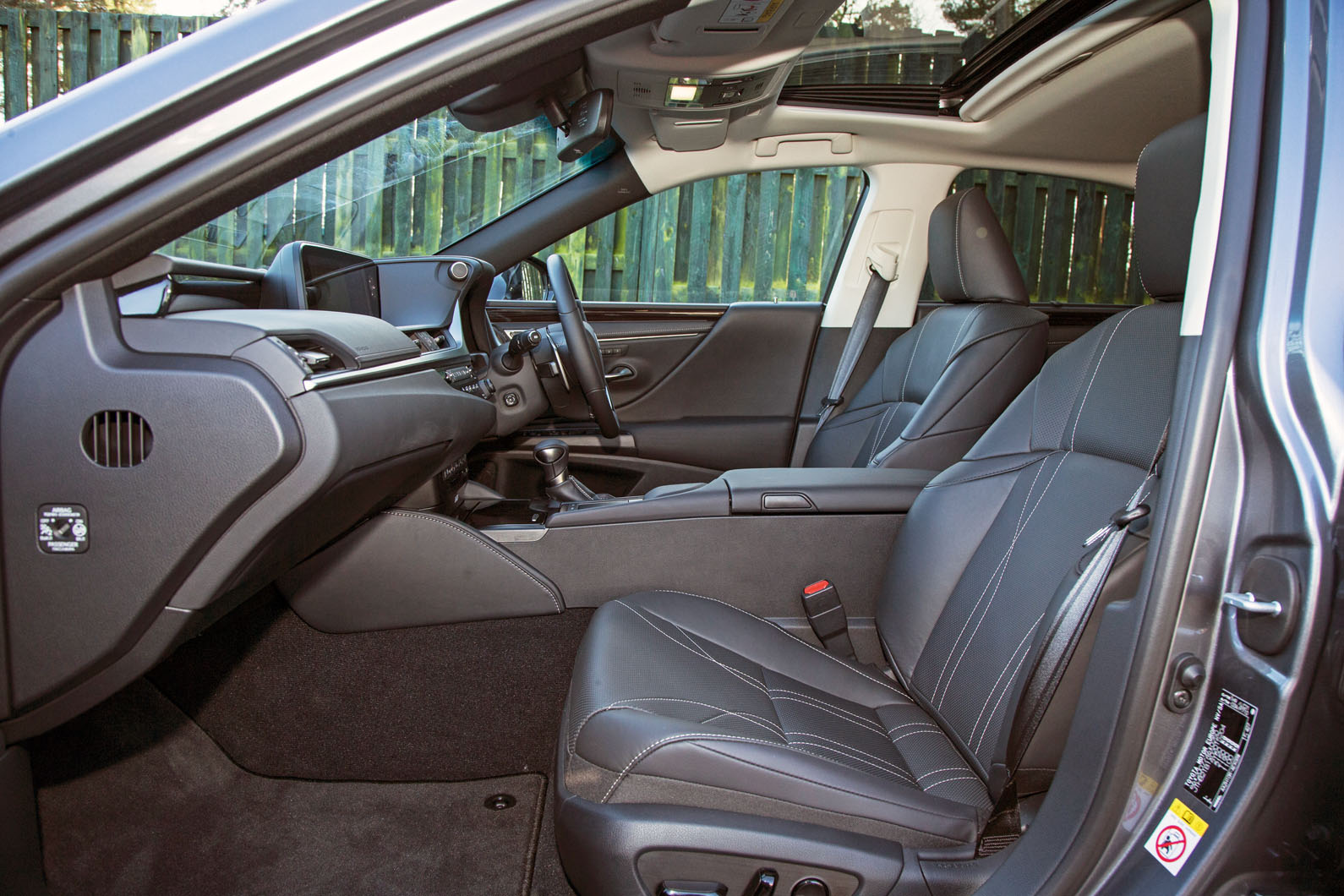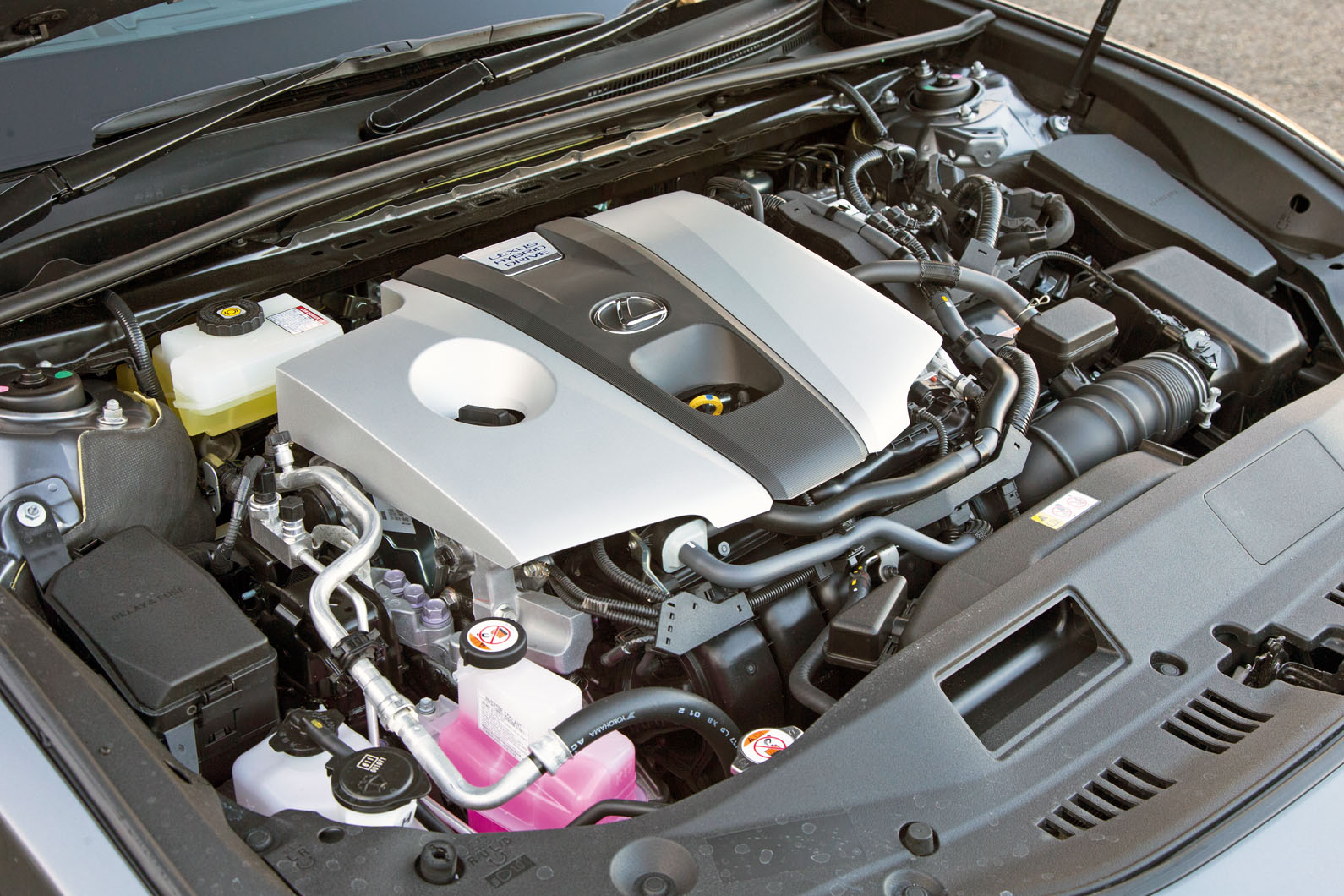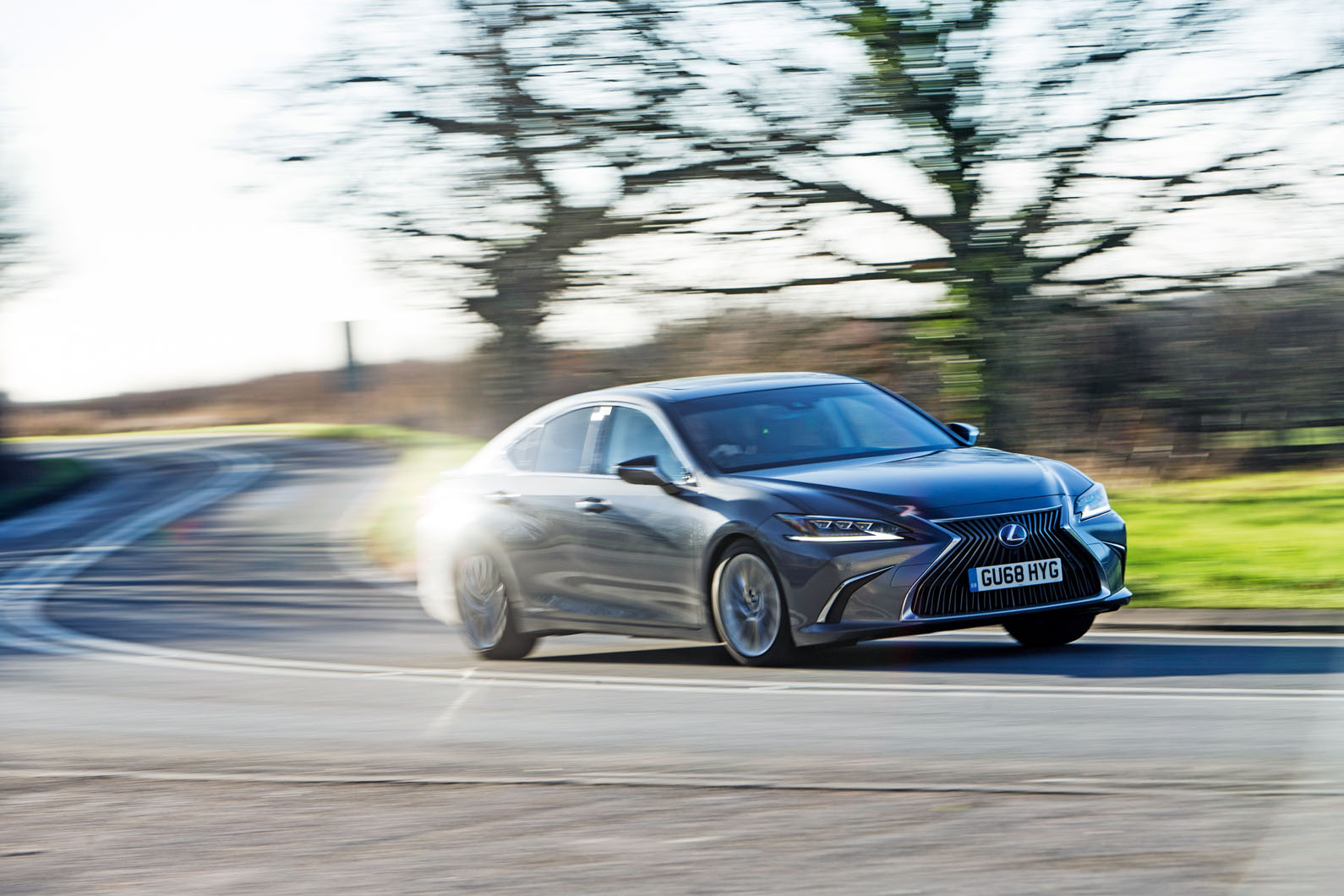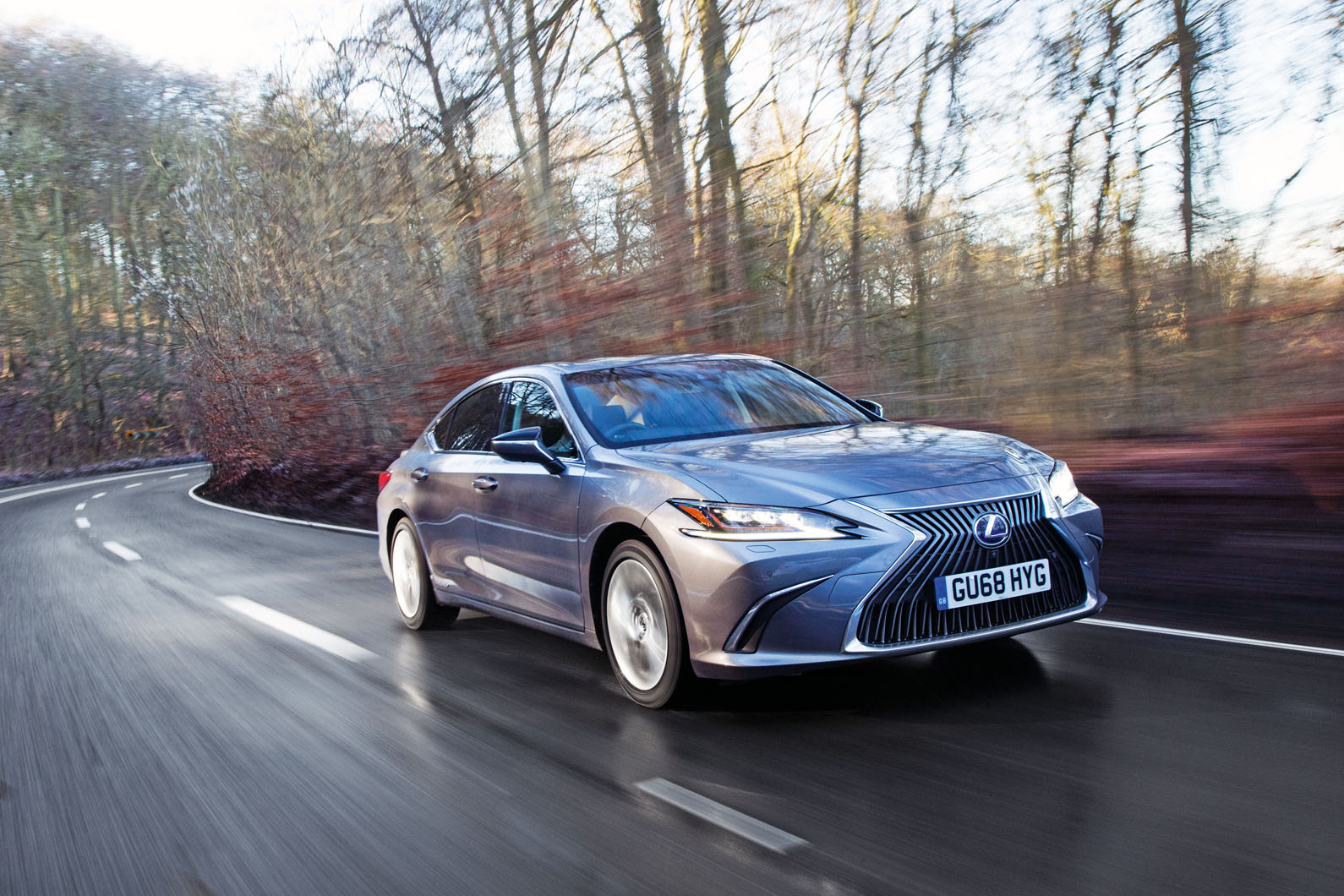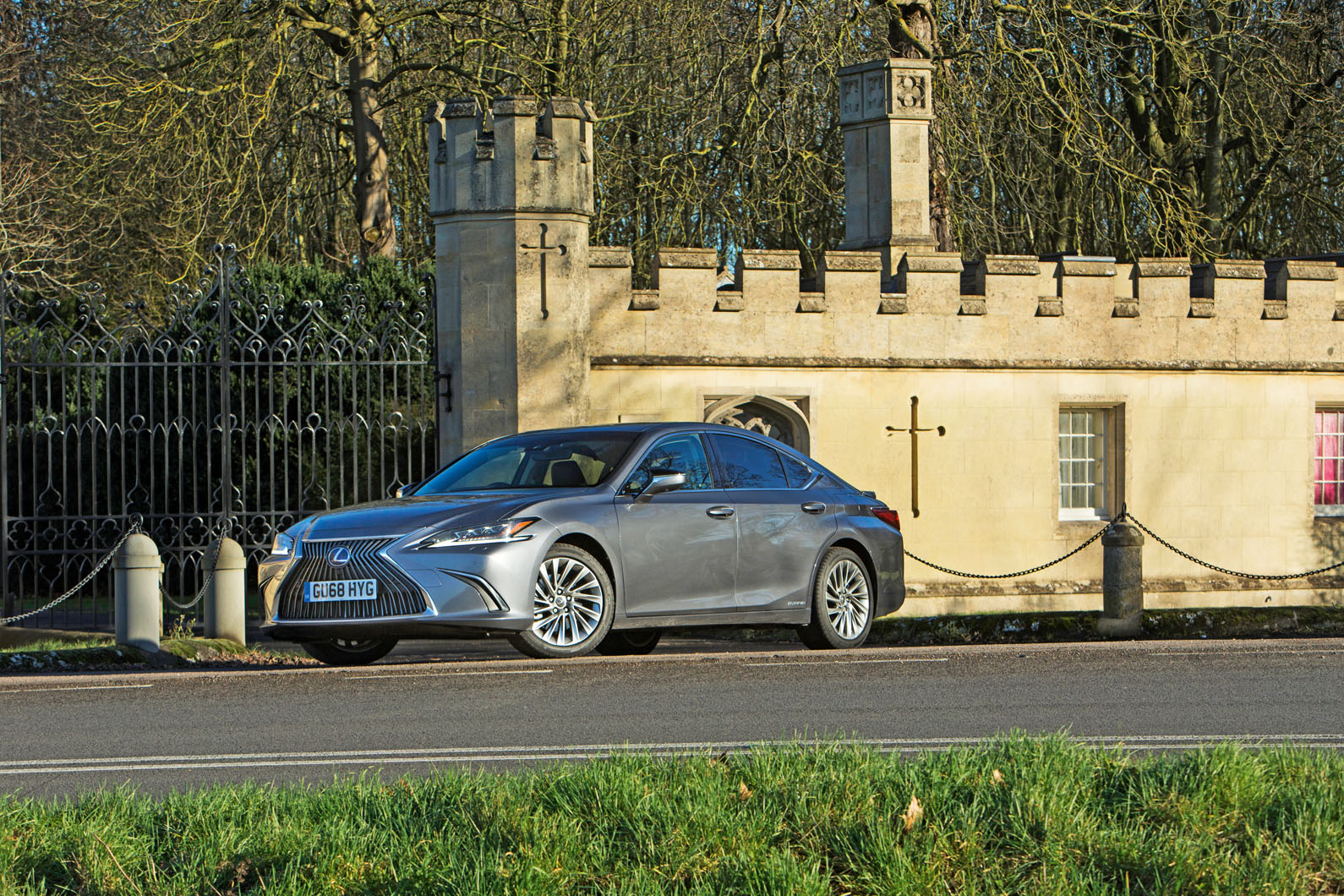This cabin isn’t one that leaves much to chance on apparent material quality or general fit and finish; nor could it afford to be under the circumstances we’ve already outlined.
You sit medium-high in the car, but have enough range of adjustment on the very comfortable, richly upholstered leather seat to have your thighs outstretched and well-supported by the extendable seat cushion. The steering column hasn’t quite got the telescoping range of adjustment needed for taller drivers to assume the perfect driving position, but only for the want of an inch or so’s travel – so your on-board comfort levels remain very high.
You can’t but be impressed by the feel of integrity about the car’s major and minor fittings. You can lean as hard as you like on the elbow-high transmission tunnel without prompting the merest squeak from it, while you won’t find a loose or flimsy moulding or piece of trim anywhere around the car. Three-dimensional dark smoked chrome trim and dark ash wood veneers are used to fine effect as decoration, while the ES’s main design theme, just as in so many current Lexus models, is one similar to that of high-end hi-fi equipment.
You get more physical switchgear than you might in an equivalent Audi, Volvo or Mercedes, but much of it is stylised and – like the car’s volume knob itself and its heater controls – therefore quite enticing to touch. Instrumentation is conveyed by water temperature and fuel gauges of a good, readable size, alongside a central digital dial whose display function changes with selected driver mode. That you only get a rev-counter in Sport mode is a bit annoying, likewise that you can’t have an analogue-style speedometer at all. In the latter case, however, the car’s head-up display, which relays a digital speedo close to your line of sight, is very handy.
Storage is reasonable, although the car’s glovebox and armrest cubby aren’t quite as big as they look. In the second row, meanwhile, knee room is generous but head room is less so, while a highish floor and flattish cushion may leave larger adults feeling slightly cooped up.
Boot space is pretty average by class standards and, while our test car had a ski hatch for some through-loading, it didn’t have split-folding rear seatbacks – nor does any other trim of ES 300h. On several of those counts, it would be remiss not to penalise the car a little bit of credit for a practicality showing that isn’t quite what some executive saloon drivers will expect.
You would expect the ES to offer every digital gadget going, and of course our top-of-the-range Takumi car has got them all – 12.3in infotainment system, 17-speaker audio, colour head-up display, wireless phone charging pad, 360deg parking cameras – as standard.
On an entry-level ES 300h, you get an 8.0in infotainment set-up and 10-speaker audio. Mid-spec F Sport models can be upgraded with most of the car’s best tech, but it’s a £4000 package – and you can’t pick and choose items to bring that cost down. If you do splash the cash on the high-end systems, you will get a good factory navigation system and a stereo of impressive power and clarity, though the former presents place names in a font that can make them hard to read at a glance, and could provide better mapping detail.
Interfacing with the car’s various infotainment features can be anything from distracting to frustrating using only Lexus’s Remote Touch Interface touch-recognition pad. Familiarity may well moderate the pain, but won’t eradicate it.


